Welcome Guest!
- IELTS Listening
- IELTS Reading
- IELTS Writing
- IELTS Writing Task 1
- IELTS Writing Task 2
- IELTS Speaking
- IELTS Speaking Part 1
- IELTS Speaking Part 2
- IELTS Speaking Part 3
- IELTS Practice Tests
- IELTS Listening Practice Tests
- IELTS Reading Practice Tests
- IELTS Writing Practice Tests
- IELTS Speaking Practice Tests
- All Courses
- IELTS Online Classes
- OET Online Classes
- PTE Online Classes
- CELPIP Online Classes
- Free Live Classes
- Australia PR
- Germany Job Seeker Visa
- Austria Job Seeker Visa
- Sweden Job Seeker Visa
- Study Abroad
- Student Testimonials
- Our Trainers
- IELTS Webinar
- Immigration Webinar

IELTS Writing Task 2 Economic Growth – Some people say that economic growth is the only way to end hunger and poverty Sample Essay
Updated On Jan 10, 2024

Share on Whatsapp
Share on Email
Share on Linkedin

Limited-Time Offer : Access a FREE 10-Day IELTS Study Plan!
Given below is a real IELTS Writing Part 2 Essay question. We have provided sample essays as well as an essay outline so that you can practice writing your own!
Not sure how to approach IELTS Essay questions? Take a look at IELTS Writing Task 2 Preparation Tips/Tricks 2022 | IELTSMaterial.com
Learn how to write the perfect Essay introduction with the guide below!
Discussion Essay
Introduction
- Refer to the first view
- Refer to the second view
- Clearly state your inclination (as is asked in the question)
- Paragraph 1- First viewpoint. (Only the growth of the economies of the developing countries will provide the poor with the wealth to afford the basic necessities of life. The profits made by corporations who are responsible for this economic growth will trickle down in the form of financial benefits to be enjoyed by the starving and needy.)
- Paragraph 2- Second viewpoint. (There are countless examples to support the opposing view that economic growth results in environmental destruction. Firstly, this is true for developing countries, where lowland rainforests have been cleared and unsustainable agricultural practices introduced to produce cash crops, often for export.)(The continued use of fossil fuels, which provide the energy for growing industrialization, causes global warming. This leads to a rise in sea levels, which will eventually make tens of millions of poor people in Bangladesh homeless.)
Give your opinion in the conclusion. (The economic growth which is not sustainable, must be stopped. If it is based on generating profits rather than meeting human needs, such growth will only create more poverty and lead to more hunger in the world by destroying natural resources.)
Sample Essay
It is true that some people contend that economic growth is the only solution to the global problems of hunger and poverty. Others, however, argue for an end to economic growth to conserve our environment. I agree completely with this second view.
Those who see economic growth alone as the sole cure for the tragedy of world hunger and poverty propose one major argument. Only the growth of the economies of developing countries will provide the poor with the wealth to afford the basic necessities of life . The profits made by corporations that are responsible for this economic growth will trickle down in the form of financial benefits to be enjoyed by the starving and needy. This view has justified the age of imperialism and the destruction of the livelihood of millions in the name of progress.
On the other hand, there are countless examples to support the opposing view that economic growth results in environmental destruction. Firstly, this is true for developing countries, where lowland rainforests have been cleared and unsustainable agricultural practices introduced to produce cash crops , often for export. Secondly, it is also true for developed economies. For example, the continued use of fossil fuels, which provide the energy for growing industrialization, causes global warming. This leads to a rise in sea levels, which will eventually make tens of millions of poor people in Bangladesh homeless.
In conclusion, economic growth which is not sustainable must be stopped. If it is not based on meeting human needs rather than generating profits, such growth will only create more poverty and lead to more hunger in the world by destroying natural resources.
- To contend [verb] :
Meaning : to say that something is true (especially in an argument) Example : Although Brazil did not win the World Cup, my friend contends that they were the best team.
- Tragedy [noun] :
Meaning : a very sad event or situation Example : It is a tragedy that many children die of starvation in the world today.
- The basic necessities of life [expression] :
Meaning : the things which you must have in order to live and survive Example : Many people cannot afford the basic necessities of life, such as food and clothing.
- To trickle down [phrasal verb] :
Meaning : to spread money from rich people to poor people, through the economic system of a country Example : Although the corporation made a lot of money last year, none of this trickled down to its employees.
- Livelihood [noun] :
Meaning : means of earning money in order to live Example : Communities on the island depend on fishing for their livelihood.
- In the name of [expression] :
Meaning : used to give a reason for doing something, often when what you are doing is wrong Example : Many wars have been fought in the name of religion.
- Countless [adjective] :
Meaning : very many (too many to be counted) Example : I’ve told John countless times, but he still doesn’t remember my phone number.
- Unsustainable [adjective] :
Meaning : that cannot be continued at the same rate or level Example : The use of oil at the present rate is unsustainable – there are reserves only for 20 or 30 more years.
- Cash crops [noun] :
Meaning : crops grown for selling, not for use by the person who grows them Example : The best land in the country is using for growing cash crops like pineapples for export to Europe.
- To generate [verb] :
Meaning : to produce or create something Example : In order to generate more electricity, the government is providing funding for wind farms.
Band 9 Sample Essay
Economic growth, as some may propose, is the only alternative to eradicate destitution and the dearth of basic necessities amongst the underprivileged strata of our society. While some are proponents of the opposite view and advocate putting an end to economic growth in the wake of rising environmental issues, I am in alignment with the latter school of notion.
The major reason why some people steadfast the essence of economic growth vigorously is owing to their inclination towards considering money as the only way to lacerate the poverty line. Economic progress could increase the status quo as it is a quintessential pillar when it comes to the development stature of a country. The GDP, NNP, NI (National income), etc. are some of the deciding factors as to how a country performs and, thereby fortifying the economic front would conspicuously mean the improvisation and revamping the ailing lifestyle of the people below the poverty and hunger threshold.
In contrast, the argument that supports putting an end to the ideology of rigorous economic growth is propelled by several instances, which, more often than not, have been a deterrent to an overall dip in development and especially, sustainable development. The overhaul of natural resources is a principal detrimental factor that anchors the fact that under the pretext of the growth model, our natural economies have been overused and rather hackneyed in the spur of capital investment. It has not only put the flora and fauna to the endangered quotations but has also put the entire Earth on the verge of dereliction. Deforestation, animal poaching, industrialization, urbanization and all other underlying dynamics have debilitated the health of our planet and obviously, its constituents. Eutrophication, due to the increase in strengthening agricultural practices and faster yielding, has been exacerbated in the past few years. The paucity of water level and the retention of groundwater have been diminished mainly due to soil erosion, again a result of cutting trees and destructing vegetation and frondescence.
Therefore, it could be said in conclusion that reckless chasing of the desired capital and economic success has deterred and aberrated the all-around status of our nature at large. If that continues to prance likewise, we’ll indeed have to invest even more capital to restore the profligate spending of our natural assets.
More Writing Task 2 Essay Topics
- Scientific Research Should Be Carried Out and Controlled by the Government
- The Tradition of Families Getting Together to Eat Meals is Disappearing
- Is Freedom of Speech Necessary In a Free Society
- In Today’s World of Advanced Science and Technology
- Some People Think That Young People Should Be Required to Do Unpaid Work Helping People in The Community
Also check:
- IELTS Essay Topics
- Tips to write introduction in IELTS Writing Task 2
- Tips to write great writing essay
- IELTS Sample essays
- IELTS Writing task 2 Tips
- Tips to Improve IELTS Writing Skills
- How to get band 8 in IELTS Writing Task 2
- IELTS Writing recent actual test
- Direct question essay
- IELTS Band 9 essays
- Advantage and Disadvantage Essays
- IELTS Writing Answer sheet
Practice IELTS Writing Task 2 based on Essay types

Start Preparing for IELTS: Get Your 10-Day Study Plan Today!
Nafia Zuhana is an experienced content writer and IELTS Trainer. Currently, she is guiding students who are appearing for IELTS General and Academic exams through ieltsmaterial.com. With an 8.5 score herself, she trains and provides test takers with strategies, tips, and nuances on how to crack the IELTS Exam. She holds a degree in Master of Arts – Creative Writing, Oxford Brookes University, UK. She has worked with The Hindu for over a year as an English language trainer.
Explore other Discussion Essays
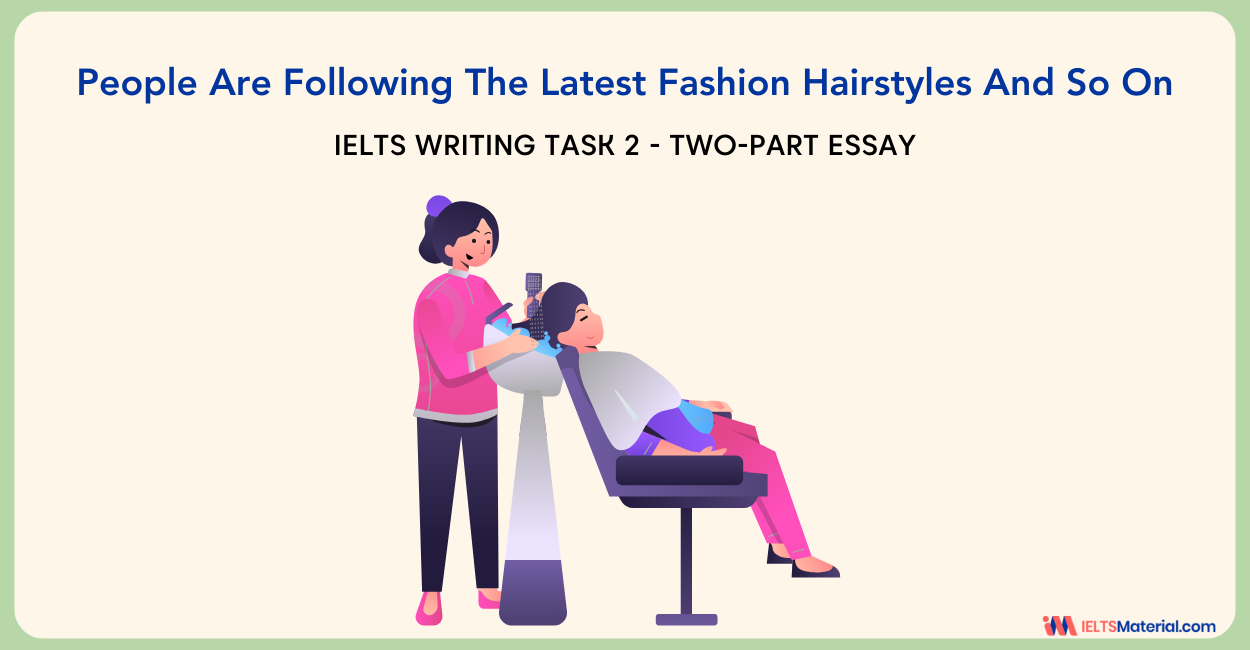
Nehasri Ravishenbagam
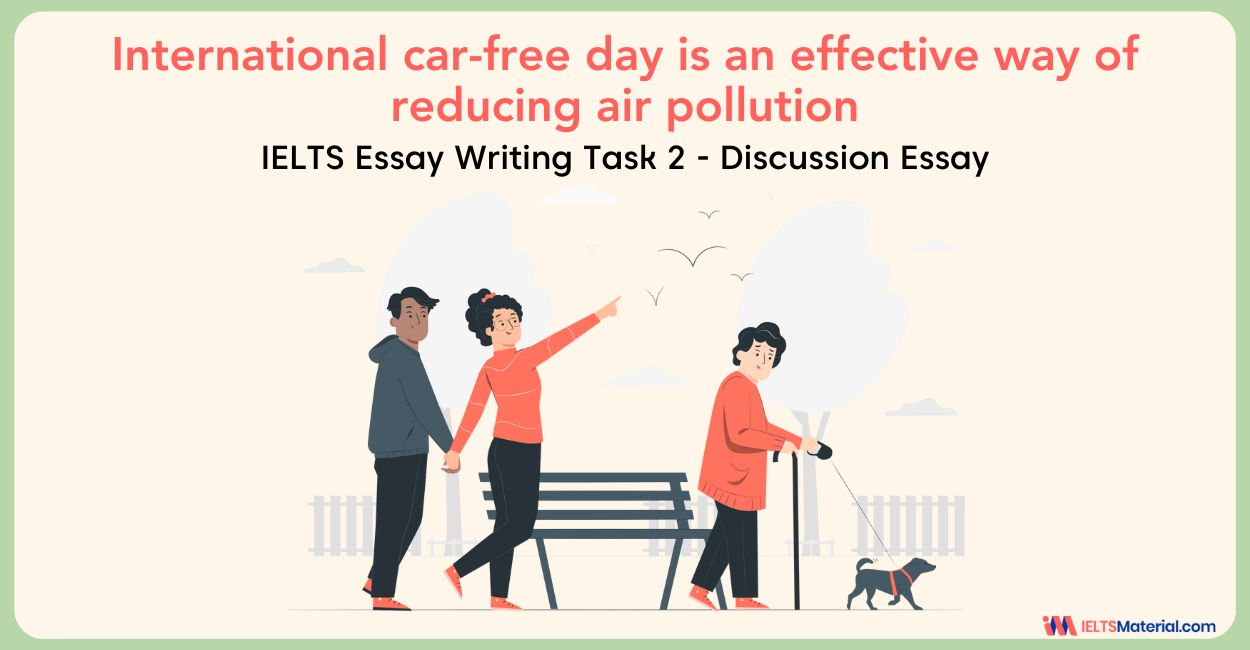
Courtney Miller

Janice Thompson

Post your Comments
Recent articles.
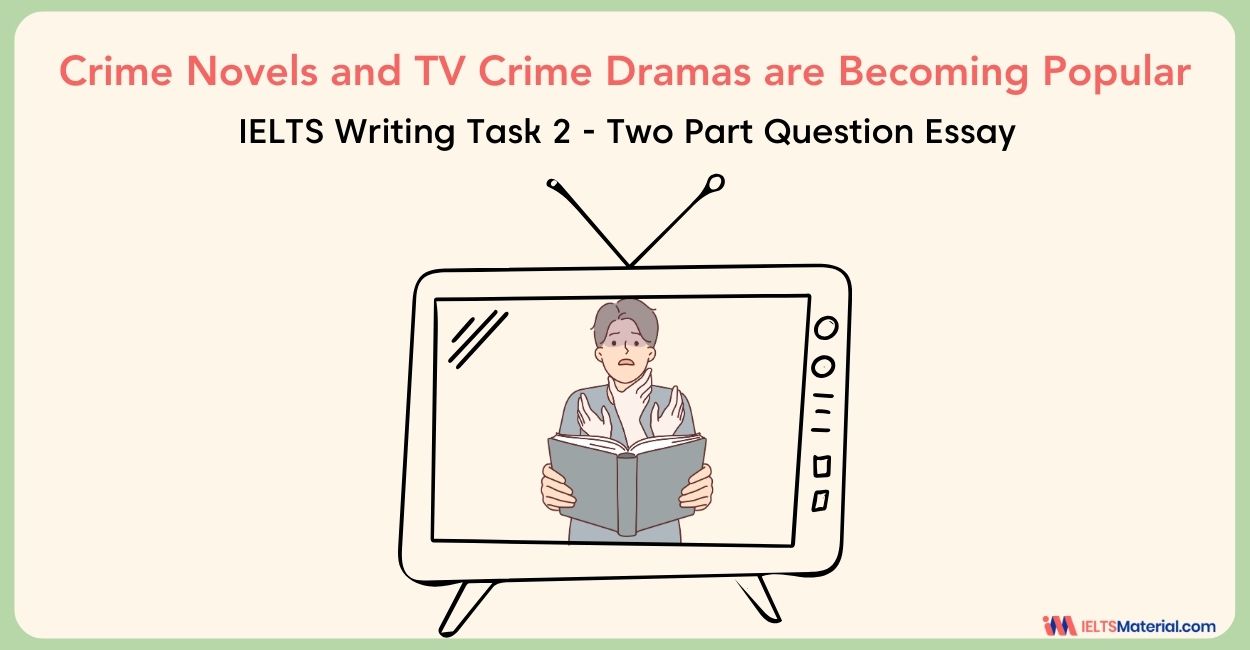
Kasturika Samanta
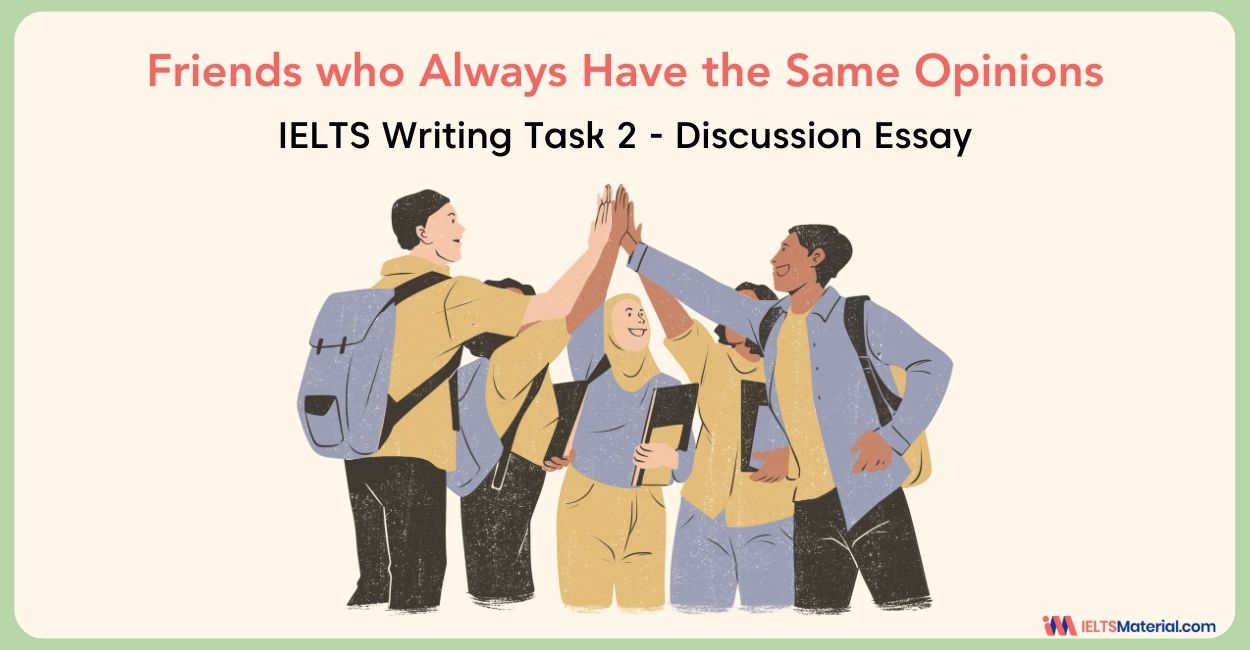
Our Offices
Gurgaon city scape, gurgaon bptp.
Step 1 of 3
Great going .
Get a free session from trainer
Have you taken test before?
Please select any option
Get free eBook to excel in test
Please enter Email ID
Get support from an Band 9 trainer
Please enter phone number
Already Registered?
Select a date
Please select a date
Select a time (IST Time Zone)
Please select a time
Mark Your Calendar: Free Session with Expert on
Which exam are you preparing?
Great Going!
IELTS Mentor "IELTS Preparation & Sample Answer"
- Skip to content
- Jump to main navigation and login
Nav view search
- IELTS Sample
IELTS Writing Task 2/ Essay Topics with sample answer.
Ielts essay # 1399 - poverty is the reason behind most crimes, ielts writing task 2/ ielts essay:, some people think that poverty is the reason behind most crimes., to what extent do you agree or disagree.
- IELTS Essay
- Writing Task 2
- Agree/Disagree Essay
- IELTS Writing Task 2
- Opinion Essay
IELTS Materials
- IELTS Bar Graph
- IELTS Line Graph
- IELTS Table Chart
- IELTS Flow Chart
- IELTS Pie Chart
- IELTS Letter Writing
- Academic Reading
Useful Links
- IELTS Secrets
- Band Score Calculator
- Exam Specific Tips
- Useful Websites
- IELTS Preparation Tips
- Academic Reading Tips
- Academic Writing Tips
- GT Writing Tips
- Listening Tips
- Speaking Tips
- IELTS Grammar Review
- IELTS Vocabulary
- IELTS Cue Cards
- IELTS Life Skills
- Letter Types

- Privacy Policy
- Cookie Policy
- Copyright Notice
- HTML Sitemap

- Writing Correction
- Online Prep Platform
- Online Course
- Speaking Assessment
- Ace The IELTS
- Target Band 7
- Practice Tests Downloads
- IELTS Success Formula
- Essays Band 9 IELTS Writing Task 2 samples – IELTS Band 9 essays
- Essays Band 8 IELTS Writing – samples of IELTS essays of Band 8
- Essays Band 7 IELTS Writing – samples of IELTS essays of Band 7
- Essays Band 6 IELTS Writing – samples of IELTS essays of Band 6
- Essays Band 5 IELTS Writing – samples of IELTS essays of Band 5
- Reports Band 9 IELTS Writing – samples of IELTS reports of Band 9 (Academic Writing Task 1)
- Reports Band 8 IELTS Writing – samples of IELTS reports of Band 8
- Reports Band 7 IELTS Writing – samples of IELTS reports of Band 7
- Letters Band 9 IELTS Writing Task 1 – samples of IELTS letters of Band 9
- Letters Band 8 IELTS Writing – samples of IELTS letters of Band 8
- Letters Band 7 IELTS Writing – samples of IELTS letters of Band 7
- Speaking Samples
- Tests Samples
- 2023, 2024 IELTS questions
- 2022 IELTS questions
- 2021 IELTS questions
- 2020 IELTS questions
- High Scorer’s Advice IELTS high achievers share their secrets
- IELTS Results Competition
- IELTS-Blog App
IELTS essay, topic: Everybody should pay a small amount from their income to help people in poverty (agree/disagree)
- IELTS Essays - Band 9
This is a model response to a Writing Task 2 topic from High Scorer’s Choice IELTS Practice Tests book series (reprinted with permission). This answer is close to IELTS Band 9.
Set 4 General Training book, Practice Test 18
Writing Task 2
You should spend about 40 minutes on this task.
Write about the following topic:
Everybody today should pay a small amount from their income in order to help people who are homeless and / or suffering great poverty. To what extent do you agree or disagree with this?
Give reasons for your answer and include any relevant examples from your knowledge or experience.
You should write at least 250 words.

Sample Band 9 Essay
Homelessness and poverty is a terrible but topical issue in both more economically advanced and less industrialised countries. To deal with this, many people feel that a small proportion of everyone’s income should be used to aid the homeless and poor. This could create more opportunities and change the lives of many disadvantaged people for the better.
Though there are certain facilities such as shelters and soup kitchens to aid the poor and homeless, it is clear that this is not enough. In the U.S. alone, a very developed country in itself, nearly two million people are homeless. These facilities can lend a helpful hand; however, they do not help eradicate the problem. Those people who are homeless or poor can have trouble finding jobs, or, if they are lucky to gain employment, the pay may not be enough to support them and their families.
If a small percentage of everyone’s income was used to help build more aid facilities and fund organisations to help the homeless and poor, the suffering of many people could be alleviated. However, this is not a perfect world, and taxes are high enough for many people. A similar argument could be that a portion of the taxes already paid to the government should then be set aside for this cause, but of course government funds are usually stretched to breaking point as it is, as governments have so many financial responsibilities already.
Though the fundamental idea that people should pay a small percentage of their income to help the homeless and poor is admirable, it is unlikely that enough people would agree to it. People need all the money they earn after taxes anyway and, although governments already have too many calls on their available funds, in my view they should prioritise support payments for the homeless.
Go here for more IELTS Band 9 Essays
Related posts:
- IELTS essay, topic: Households should have a government-imposed limit on the amount of rubbish they produce (agree/disagree) This is a model response to a Writing Task 2...
- IELTS essay, topic: Only people over 18 years old should be allowed to use social media (agree/disagree) This is a model response to a Writing Task 2...
- IELTS essay, topic: People today find their lives more and more dominated by their jobs (agree/disagree) This is a model response to a Writing Task 2...
- IELTS Essay, topic: Some people believe that the problem of illegal drugs can be solved by legalising all drugs (agree/disagree) This is a model response to a Writing Task 2...
2 thoughts on “IELTS essay, topic: Everybody should pay a small amount from their income to help people in poverty (agree/disagree)”
Very essential 👌
Thank you for your feedback!
Leave a Reply
Your email address will not be published. Required fields are marked *
Save my name, email, and website in this browser for the next time I comment.
IELTS Writing Task 2 Topic Examples
Improvements in health, education and trade are essential for the development of poorer nations. however, the governments of richer nations should take more responsibility for helping the poorer nations in such areas. to what extent do you agree or disagree with this opinion.
You should use your own ideas, knowledge and experience and support your arguments with examples and relevant evidence.
You should write at least 250 words.
Many people think that countries have a moral obligation to help each other, while other argue that the aid money is misspent by the governments that receive it, so the international aid should not be given to the poor countries in the world. To what extent do you agree or disagree with this statement?
Get your writing and speaking corrected.
Join the ever growing group of students who we helped on the road to success and get the professional help you have been looking for.
Useful links
- Writing Correction
Have your writing checked and corrected by one of our teachers and get feedback within 24 hours
Writing Task 2
Have a look at the overview of Writing task 2 and what to expect
How to Writing Task 2
Have a look at how to write a writing task 2, how to deal with the question, how to structure your writing,…
Writing Task 2: 5 Question Types
Have a look at what are the different Writing Task 2 Questions, how to answer them and how to structure your essay accordingly.
Writing Task 2 Examples
Have a look some Writing Task 2 Examples
General Writing task 1
Have a look at the overview of General Writing Task 1 and what to expect.
General Writing task 1 a letter.
Have a look at what kind of letters you have to write and how to write them.
Academic Writing task 1
Have a look at the overview of Academic Writing task 1 and what to expect.
Academic Writing Task 1 Graphs
Have a look at how to deal with Graphs, how to analyse them, structure the task, write them,…
Academic Writing Task 1 Maps
Have a look at how to deal with Maps, how to analyse them, structure the task, write them,…
Academic Writing Task 1 Processes
Have a look at how to deal with Processes, how to analyse them, structure the task, write them,…
If you think there are some questions missing, do let us know in the comments.
Leave a reply cancel reply.
Your email address will not be published. Required fields are marked *
This site uses Akismet to reduce spam. Learn how your comment data is processed .
Can't find what you need?
Ask our teachers.
- Why choose us
- How We Achieve
- Our Materials
- Terms of service
- Privacy Policy
- Cookie Policy
- Speaking Correction
- One-to-One Courses
- Group Curses
- Pronunciation
- General Overview
- General Task 1
- General Task 2
- Academic Overview
- Academic Task 1
- Academic Task 2
IELTS is a registered trademark of University of Cambridge, the British Council, and IDP Education Australia. This site and its owners are not affiliated, approved or endorsed by the University of Cambridge ESOL, the British Council, and IDP Education Australia. The information on this site is for information purposes only.
ieltsassistance.co.uk © 2018 All rights reserved.
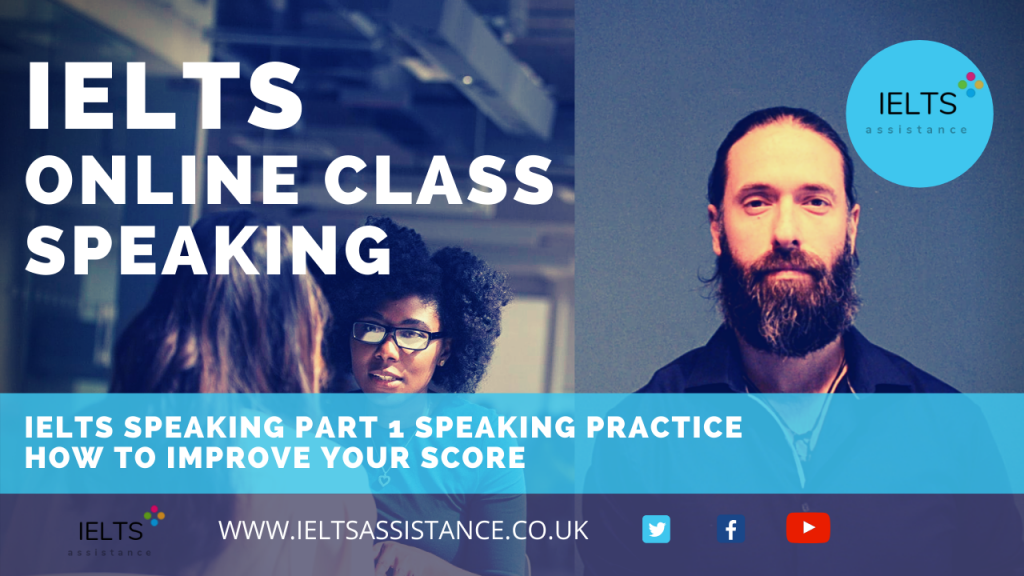
Can’t find what you need? Ask our teachers:
Some people think that poverty is the reason behind most crimes. To what extent do you agree or disagree? Give reasons for your answer and include any relevant examples from your own knowledge or experience.
Unauthorized use and/or duplication of this material without express and written permission from this site’s author and/or owner is strictly prohibited. Excerpts and links may be used, provided that full and clear credit is given to Writing9 with appropriate and specific direction to the original content.
- Check your IELTS essay »
- Find essays with the same topic
- View collections of IELTS Writing Samples
- Show IELTS Writing Task 2 Topics
Millions of dollars are spent on space research every year. Some people argue that the money should be spent on improving living standards on Earth. Do you agree or disagree?
Nowadays many people choose to be self-employed, rather than to work for a company or organization. why might this be the case what could be the disadvantages of being self- employed, eating too much sugar is harmful to health. some people think it is the government’s responsibility to limit people’s sugar consumption, while others think it is an individual’s responsibility to limit the amount of sugar they eat. discuss both views and give your own opinion., some people think that the increasing use of computers and mobile phones for communication has a negative effect on young people's reading and writing skills. to what extent do you agree or disagree, some people think it's better to choose friends who always have the same opinions as them. other people believe it's good to have friends who sometimes disagree with them. discuss both these views and give your own opinion. give reasons for your answer and include any relevant examples from your own knowledge or experience. write at least 250 words..
IELTS Practice.Org
IELTS Practice Tests and Preparation Tips
- Sample Essays
IELTS essay sample | Free education will help fight poverty in developing nations
by Manjusha Nambiar · July 6, 2016
Essay topic
The best way to reduce poverty in developing countries is by giving up to 6 years of free education to children, so that they can at least read, write and use numbers. To what extent do you agree or disagree with the statement?
Sample essay
Education plays a crucial role in alleviating poverty. Take a look at the developed nations in the world. It is not hard to see that the biggest strength of these nations is their educated workforce. So, I agree with the argument that the best way to reduce poverty in developing nations is to provide free education to their children. While, six years of free education isn’t sufficient, it is definitely better than no education at all.
Education has the potential to change lives. Educated people can protect themselves from exploitation at the workplace. They earn better salaries. All of these improve their chances of freeing themselves from the shackles of poverty.
Besides improving the finances of a person, education helps them improve the overall quality of their life. Perhaps the biggest benefit of receiving education is that they will pass it down to the next generation. Educated parents will ensure that their children also receive education.
Education throws open many doors. An ability to read and write improves one’s understanding of one’s surroundings. Just because someone has received a few years’ of schooling, they are unlikely to be able to land a good job. Even so, a little education is much better than no education at all. An ability to read and write makes them aware of their rights. In many countries the government has several welfare schemes for the poor. However, many of them are not aware of these schemes and cannot take advantage of them. They are often deceived by unscrupulous leaders and politicians who pocket the benefits meant for them.
To conclude, even primary education has the potential to improve lives and reduce poverty. Therefore, I strongly agree with the argument that it should be free for all children.
Tags: ielts essay sample
Manjusha Nambiar
Hi, I'm Manjusha. This is my blog where I give IELTS preparation tips.
- Next story IELTS speaking practice
- Previous story IELTS essay sample | Government interference in school syllabi
Leave a Reply Cancel reply
You must be logged in to post a comment.
- Academic Writing Task 1
- Agree Or Disagree
- Band 7 essay samples
- Band 8 Essay Samples
- Band 8 letter samples
- Band 9 IELTS Essays
- Discuss Both Views
- Grammar exercises
- IELTS Writing
- Learn English
- OET Letters
- Sample Letters
- Writing Tips
Enter your email address:
Delivered by FeedBurner
IELTS Practice
Top Streams
- Data Science Courses in USA
- Business Analytics Courses in USA
- Engineering Courses in USA
- Tax Courses in USA
- Healthcare Courses in USA
- Language Courses in USA
- Insurance Courses in USA
- Digital Marketing Courses in USA
Top Specialization
- Masters in Data Analytics in USA
- Masters in Mechanical Engineering in USA
- Masters in Supply Chain Management in USA
- Masters in Computer Science in USA
- MBA in Finance in USA
- Masters in Architecture in USA
Top Universities
- Cornell University
- Yale University
- Princeton University
- University of California Los Angeles
- University of Harvard
- Stanford University
- Arizona State University
- Northeastern University
ACCEL PROGRAMS
- Master of Business Administration
- MS in Data Analytics
- MS in Computer Science
- Project Management Courses in Australia
- Accounting Courses in Australia
- Medical Courses in Australia
- Psychology Courses in Australia
- Interior Designing Courses in Australia
- Pharmacy Courses in Australia
- Social Work Courses in Australia
- MBA in Australia
- Masters in Education in Australia
- Masters in Pharmacy in Australia
- Masters in Information Technology in Australia
- BBA in Australia
- Masters in Teaching in Australia
- Masters in Psychology in Australia
- University of Melbourne
- Deakin University
- Carnegie Mellon University
- Monash University
- University of Sydney
- University of Queensland
- RMIT University
- Macquarie University
- Bachelor of Business Administration
- Bachelor of Computer Applications
- Data Science Courses in Canada
- Business Management Courses in Canada
- Supply Chain Management Courses in Canada
- Project Management Courses in Canada
- Business Analytics Courses in Canada
- Hotel Management Courses in Canada
- MBA in Canada
- MS in Canada
- Masters in Computer Science in Canada
- Masters in Management in Canada
- Masters in Psychology in Canada
- Masters in Education in Canada
- MBA in Finance in Canada
- Masters in Business Analytics in Canada
- University of Toronto
- University of British Columbia
- McGill University
- University of Alberta
- York University
- University of Calgary
- Algoma University
- University Canada West
- BBA in Canada, Trinity Western University
- BBA in Canada, Yorkville University
- Project Management Courses in UK
- Data Science Courses in UK
- Public Health Courses in UK
- Digital Marketing Courses in UK
- Hotel Management Courses in UK
- Nursing Courses in UK
- Medicine Courses in UK
- Interior Designing Courses in UK
- Masters in Computer Science in UK
- Masters in Psychology in UK
- MBA in Finance in UK
- MBA in Healthcare Management in UK
- Masters in Education in UK
- Masters in Marketing in UK
- MBA in HR in UK
- University of Oxford
- University of Cambridge
- Coventry University
- University of East London
- University of Hertfordshire
- University of Birmingham
- Imperial College London
- University of Glasgow
- MBA with Work Placement
- MSc Data Science with Work Placement
Top Resources
- Universities in Germany
- Study in Germany
- Masters in Germany
- Courses in Germany
- Bachelors in Germany
- Germany Job Seeker Visa
- Cost of Living in Germany
- Best Universities in Germany
Top Courses
- Masters in Data Science in Germany
- MS in Computer Science in Germany
- Marine Engineering in Germany
- MS Courses in Germany
- Masters in Psychology in Germany
- Hotel Management Courses in Germany
- Masters in Economics in Germany
- Paramedical Courses in Germany
- Karlsruhe Institute of Technology
- University of Bonn
- University of Freiburg
- University of Hamburg
- University of Stuttgart
- Saarland University
- Mannheim University
- Master of Business Administration (90 ECTS)
- MS Data Science 60 ECTS
- Master in Computer Science (120 ECTS)
- MBA in Ireland
- Phd in Ireland
- Masters in Computer Science Ireland
- Cyber Security in Ireland
- Masters in Data Analytics Ireland
- Ms in Data Science in Ireland
- Pharmacy courses in ireland
- Business Analytics Course in Ireland
- Universities in Ireland
- Study in Ireland
- Masters in Ireland
- Courses in Ireland
- Bachelors in Ireland
- Cost of Living in Ireland
- Ireland Student Visa
- Part Time Jobs in Ireland
- Trinity College Dublin
- University College Dublin
- Dublin City University
- University of Limerick
- Dublin Business School
- Maynooth University
- University College Cork
- National College of Ireland
Colleges & Courses
- Masters in France
- Phd in France
- Study Medicine in France
- Best Universities in Frankfurt
- Best Architecture Colleges in France
- ESIGELEC France
- Study in France for Indian Students
- Intakes in France
- SOP for France Visa
- Study in France from India
- Reasons to Study in France
- How to Settle in France
More About France
- Cost of Living in France
- France Study Visa
- Cost of Living in Frankfurt
- France Scholarship for Indian Students
- Part Time Jobs in France
- Stay Back in France After Masters
About Finland
- Universities in Finland
- Study in Finland
- Courses in Finland
- Bachelor Courses in Finland
- Masters Courses in Finland
- Cost of Living in Finland
- MS in Finland
- Average Fees in Finland Universities
- PhD in Finland
- MBA Leading Business Transformation
- MBA Business Technologies
- Bachelor Degree in Medicine & Surgery
- MBBS Courses in Georgia
- MBBS Courses in Russia
- Alte University
- Caucasus University
- Georgian National University SEU
- David Tvildiani Medical University
- Caspian International School Of Medicine
- Asfendiyarov Kazakh National Medical University
- Kyrgyz State Medical Academy
- Cremeia Federal University
- Bashkir State Medical University
- Kursk State Medical University
- Andijan State Medical Institute
- IELTS Syllabus
- IELTS Prepration
- IELTS Eligibility
- IELTS Test Format
- IELTS Band Descriptors
- IELTS Speaking test
- IELTS Writing Task 1
- IELTS score validity
- IELTS Cue Card
IELTS Reading Answers Sample
- Animal Camouflage
- Types Of Societies
- Australia Convict Colonies
- A Spark A Flint
- Emigration To The Us
- The History Of Salt
- Zoo Conservation Programmes
- The Robots Are Coming
- The Development Of Plastic
IELTS Speaking Cue Card Sample
- Describe A Puzzle You Have Played
- Describe A Long Walk You Ever Had
- Describe Your Favourite Movie
- Describe A Difficult Thing You did
- Describe A Businessman You Admire
- Memorable Day in My Life
- Describe Your Dream House
- Describe A Bag You Want to Own
- Describe a Famous Athlete You Know
- Aquatic Animal
IELTS Essay Sample Sample
- Best Education System
- IELTS Opinion Essay
- Agree or Disagree Essay
- Problem Solution Essays
- Essay on Space Exploration
- Essay On Historical Places
- Essay Writing Samples
- Tourism Essay
- Global Warming Essay
- GRE Exam Fees
- GRE Exam Syllabus
- GRE Exam Eligibility
- Sections in GRE Exam
- GRE Exam Benefits
- GRE Exam Results
- GRE Cutoff for US Universities
- GRE Preparation
- Send GRE scores to Universities
GRE Exam Study Material
- GRE Verbal Preparation
- GRE Study Material
- GRE AWA Essays
- GRE Sample Issue Essays
- Stanford University GRE Cutoff
- Harvard University GRE Cutoff
- GRE Quantitative Reasoning
- GRE Verbal Reasoning
- GRE Reading Comprehension
- Prepare for GRE in 2 months
Other Resources
- Documents Required For Gre Exam
- GRE Exam Duration
- GRE at Home
- GRE vs GMAT
- Improve GRE Verbal Scores
Free GRE Ebooks
- GRE Preparation Guide (Free PDF)
- GRE Syllabus (Free PDF)
- GMAT Eligibility
- GMAT Syllabus
- GMAT Exam Dates
- GMAT Registration
- GMAT Exam Fees
- GMAT Sections
- GMAT Purpose
GMAT Exam Study Material
- How to prepare for GMAT?
- GMAT Score Validity
- GMAT Preparation Books
- GMAT Preparation
- GMAT Exam Duration
- GMAT Score for Harvard
- GMAT Reading Comprehension
- GMAT Retake Strategy
Free GMAT Ebooks
- GMAT Guide PDF
- Download GMAT Syllabus PDF
- TOEFL Exam Registration
- TOEFL Exam Eligibility
- TOEFL Exam Pattern
- TOEFL Exam Preparation
- TOEFL Exam Tips
- TOEFL Exam Dates
- Documents for TOEFL Exam
- TOEFL Exam Fee
TOEFL Exam Study Material
- TOEFL Preparation Books
- TOEFL Speaking Section
- TOEFL Score and Results
- TOEFL Writing Section
- TOEFL Reading Section
- TOEFL Listening Section
- TOEFL Vocabulary
- Types of Essays in TOEFL
Free TOEFL Ebooks
- TOEFL Exam Guide (Free PDF)
- PTE Exam Dates
- PTE Exam Syllabus
- PTE Exam Eligibility Criteria
- PTE Test Centers in India
- PTE Exam Pattern
- PTE Exam Fees
- PTE Exam Duration
- PTE Exam Registration
PTE Exam Study Material
- PTE Exam Preparation
- PTE Speaking Test
- PTE Reading Test
- PTE Listening Test
- PTE Writing Test
- PTE Essay Writing
- PTE exam for Australia
Free PTE Ebooks
- PTE Syllabus (Free PDF)
- Duolingo Exam
- Duolingo Test Eligibility
- Duolingo Exam Pattern
- Duolingo Exam Fees
- Duolingo Test Validity
- Duolingo Syllabus
- Duolingo Preparation
Duolingo Exam Study Material
- Duolingo Exam Dates
- Duolingo Test Score
- Duolingo Test Results
- Duolingo Test Booking
Free Duolingo Ebooks
- Duolingo Guide (Free PDF)
- Duolingo Test Pattern (Free PDF)
NEET & MCAT Exam
- NEET Study Material
- NEET Preparation
- MCAT Eligibility
- MCAT Preparation
SAT & ACT Exam
- ACT Eligibility
- ACT Exam Dates
- SAT Syllabus
- SAT Exam Pattern
- SAT Exam Eligibility
USMLE & OET Exam
- USMLE Syllabus
- USMLE Preparation
- USMLE Step 1
- OET Syllabus
- OET Eligibility
- OET Prepration
PLAB & LSAT Exam
- PLAB Exam Syllabus
- PLAB Exam Fees
- LSAT Eligibility
- LSAT Registration
- TOEIC Result
- Study Guide
Application Process
- LOR for Masters
- SOP Samples for MS
- LOR for Phd
- SOP for Internship
- SOP for Phd
- Check Visa Status
- Motivation Letter Format
- Motivation Letter for Internship
- F1 Visa Documents Checklist
Career Prospects
- Popular Courses after Bcom in Abroad
- Part Time Jobs in Australia
- Part Time Jobs in USA
- Salary after MS in Germany
- Salary after MBA in Canada
- Average Salary in Singapore
- Higher Studies after MBA in Abroad
- Study in Canada after 12th
Trending Topics
- Best Education System in World
- Best Flying Schools in World
- Top Free Education Countries
- Best Countries to Migrate from India
- 1 Year PG Diploma Courses in Canada
- Canada Vs India
- Germany Post Study Work Visa
- Post Study Visa in USA
- Data Science Vs Data Analytics
- Public Vs Private Universities in Germany
- Universities Vs Colleges
- Difference Between GPA and CGPA
- Undergraduate Vs Graduate
- MBA in UK Vs MBA in USA
- Degree Vs Diploma in Canada
- IELTS vs TOEFL
- Duolingo English Test vs. IELTS
- Why Study in Canada
- Cost of Living in Canada
- Education System in Canada
- SOP for Canada
- Summer Intake in Canada
- Spring Intake in Canada
- Winter Intake in Canada
- Accommodation in Canada for Students
- Average Salary in Canada
- Fully Funded Scholarships in Canada
- Why Study in USA
- Cost of Studying in USA
- Spring Intake in USA
- Winter Intake in USA
- Summer Intake in USA
- STEM Courses in USA
- Scholarships for MS in USA
- Acceptable Study Gap in USA
- Interesting Facts about USA
- Free USA course
- Why Study in UK
- Cost of Living in UK
- Cost of Studying in UK
- Education System in UK
- Summer Intake in UK
- Spring Intake in UK
- Student Visa for UK
- Accommodation in UK for Students
- Scholarships in UK
- Why Study in Germany
- Cost of Studying in Germany
- Education System in Germany
- SOP for Germany
- Summer Intake in Germany
- Winter Intake in Germany
- Study Visa for Germany
- Accommodation in Germany for Students
- Free Education in Germany
Country Guides
- Study in UK
- Study in Canada
- Study in USA
- Study in Australia
- SOP Samples for Canada Student Visa
- US F1 Visa Guide for Aspirants
Exams Guides
- Duolingo Test Pattern
Recommended Reads
- Fully Funded Masters Guide
- SOP Samples For Australia
- Scholarships for Canada
- Data Science Guide
- SOP for MS in Computer Science
- Study Abroad Exams
- Alumni Connect
- Booster Program
GPA CALCULATOR Convert percentage marks to GPA effortlessly with our calculator!
Expense calculator plan your study abroad expenses with our comprehensive calculator, ielts band calculator estimate your ielts band score with our accurate calculator, education loan calculator discover your eligible loan amount limit with our education calculator, university partner explore growth and opportunities with our university partnership, accommodation discover your perfect study abroad accommodation here, experience-center discover our offline centers for a personalized experience, our offices visit us for expert study abroad counseling..
- 18002102030
- Study Abroad
Poverty and Health - IELTS Reading Passage with Questions and Answers
- IELTS Preparation
- IELTS E-Books
- IELTS Registration
- IELTS Exam Fee
- IELTS Exam Dates 2024
- Documents Required
- IELTS Test Centers
- Test Format
- Band Descriptors
- IELTS Speaking Test
- General Reading Test
- General Writing Task
- IELTS Coaching
- Types of Essays
- IELTS for Australia
- IELTS Results
- Generation Gap Essay
- GPA Calculator
- Study Abroad Consultant In India
- Study Visa Consultants in India
Updated on 11 December, 2023

upGrad Abroad Team
Upgrad abroad editorial team.
Introduction:
The intricate relationship between poverty and health is a topic of global significance, often highlighted in academic and policy discussions. This IELTS reading passage explores the multifaceted impacts of poverty on health, providing learners with an opportunity to enhance their reading comprehension skills.
Table of Contents
- Passage: "The Vicious Cycle of Poverty and Health"
Questions and Answers:
Tips for students:, conclusion:, passage: "the vicious cycle of poverty and health".
In the realm of global health, the correlation between poverty and health outcomes is both profound and complex. Poverty, characterized by insufficient income to meet basic needs, often leads to compromised health. This, in turn, can exacerbate the state of poverty, creating a vicious cycle. The lack of resources results in limited access to healthcare, poor living conditions, and inadequate nutrition, all of which contribute to poorer health outcomes.
Conversely, ill health can be a direct cause of poverty. Medical expenses can consume a significant portion of a family's income, particularly in regions without universal health coverage. Furthermore, chronic illness or disability can limit an individual's ability to work, reducing their earning potential and perpetuating the cycle of poverty.
Education plays a crucial role in this dynamic. Higher levels of education typically lead to better job opportunities and increased awareness of health needs, which can break this cycle. However, the interplay between poverty and health remains a significant barrier to sustainable development and requires concerted efforts from governments, non-profit organizations, and communities to address.
Q1: What is the primary focus of the passage?
A) The role of education in health
B) The impact of healthcare policies
C) The relationship between poverty and health
D) Nutrition and health outcomes
A1: The passage primarily discusses the relationship between poverty and health, highlighting how this interplay creates a cycle that affects individuals and communities.
Q2: Fill in the blank: "Poor living conditions resulting from poverty often lead to __________."
A) Increased income
B) Better health
C) Poorer health outcomes
D) Improved nutrition
A2: The correct answer is "Poorer health outcomes." The passage outlines how poverty can result in inadequate living conditions, which negatively affect health.
Q3: True or False: "Ill health is only a consequence, not a cause, of poverty."
A3: False. The passage states that ill health can also be a cause of poverty, particularly due to medical expenses and the inability to work.
Q4: Which factor is mentioned as a potential solution to the poverty-health cycle?
A) Increased tourism
B) Globalization
C) Education
D) Technology advancements
A4: Education is highlighted as a crucial factor that can break the cycle of poverty and poor health by leading to better job opportunities and increased health awareness.
Q5: Multiple Choice: "The passage suggests that chronic illness can __________."
A) Increase earning potential
B) Limit an individual’s ability to work
C) Improve living conditions
D) Reduce healthcare costs
A5: Chronic illness can limit an individual’s ability to work, as stated in the passage. This limitation can contribute to the perpetuation of poverty.
T1: Read actively by summarizing each paragraph in your own words.
T2: Focus on identifying keywords in questions to locate relevant information in the text.
T3: Practice skimming and scanning techniques to improve your speed and efficiency.
T4: Familiarize yourself with different question formats and develop strategies for each.
T5: Enhance your vocabulary related to common IELTS themes like health, education, and poverty.
Understanding the complex relationship between poverty and health is crucial for IELTS aspirants. This practice passage, coupled with a diverse set of questions and tips, is designed to enhance reading skills while providing valuable knowledge. By engaging with such materials, learners can effectively prepare for the IELTS reading section and broaden their understanding of significant global issues.
We are a dedicated team of study-abroad experts, ensuring intensive research and comprehensive information in each of our blogs. With every piece written, we aim at simplifying the overseas education process for all. Our diverse experience as journalists, content writers, editors, content strategists, and marketers helps create the most relevant and authentic blogs for our readers.
Important Exams
Important ielts essay resources, get free consultation for ielts.
The above tips are the Author's experiences. upGrad does not guarantee scores or admissions.
Call us to clear your doubts at:
Download our App
- Grievance Redressal
- Experience Centers
- Terms of Use
- Privacy Policy
- University Partner
- Accommodation
- IELTS Band Calculator
- Download Study Abroad App
- Education Loan Calculator
- upGrad Abroad Office
- Expense Calculator
- Knowledge Base
Top Destinations
Masters programs.
- MBA in Germany, IU
- MIM in Germany, IU
- MS in CS in Germany, IU
- MS in Data Analytics in USA, Clark University
- MS in Project Management in USA, Clark University
- MS in IT in USA, Clark University
- MS in Data Analytics & Visualization in USA, Yeshiva University
- MS in Artificial Intelligence in USA, Yeshiva University
- MS in Cybersecurity, Yeshiva University
Study Abroad Important Blogs
- Cost of Study:
- Cost of Studying in Canada
- Cost of Studying in Ireland
- Cost of Studying in Australia
- Cost of living:
- Cost of living in UK
- Cost of living in Australia
- Cost of living in Germany
- Cost of living in Ireland
- Cost of living in Canada
- Career Opportunities:
- Career Opportunities in Australia
- Career Opportunities in Germany
- Job Opportunities in After MS in Canada
- Job Opportunities After MBA in Australia
- Job Opportunities After MS in UK
- IELTS Exam Resources:
- Academic IELTS
- IELTS Band Score
- IELTS Writing Task 2
- IELTS Slot Booking
- IELTS Band Score Chart
- IELTS Score for UK
- IELTS Score for USA
- Validity of IELTS Score
- IELTS Speaking Topics
- IELTS Reading Tips
- How to Prepare for IELTS at Home Without Coaching
- IELTS Preparation Books
- Types of IELTS Exam
- IELTS Academic vs General
- IELTS Exam Pattern
- IELTS Essay
- IELTS Exam Dates
- Top Streams:
- Fashion Designing Courses in Australia
- Accounting Courses in Canada
- Management Courses in Canada

IELTS Essay Topic Poverty
Sample Model Answers for IELTS Essay Topic Poverty. Practice from these ielts essay on topic Poverty. IELTS Poverty Essays.
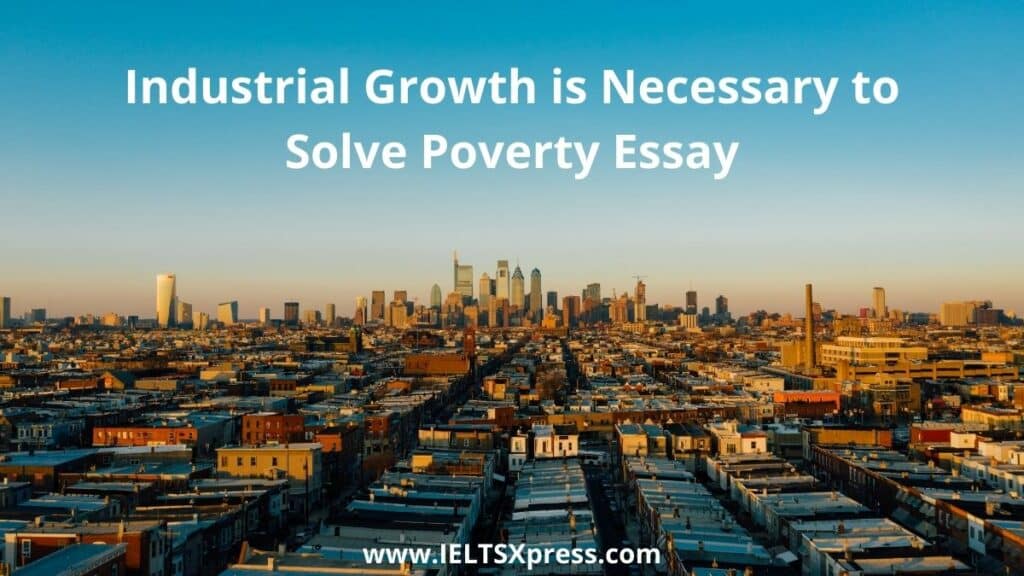
Industrial Growth is Necessary to Solve Poverty Essay
Some people say that industrial growth is necessary to solve poverty, but some other people argue that industrial growth is creating environmental problems and it should be stopped. Discuss both views and give your opinion.
Industrial Growth is Necessary to Solve Poverty Essay Read More »
Start typing and press enter to search
IELTS Preparation with Liz: Free IELTS Tips and Lessons, 2024
- Test Information FAQ
- Band Scores
- IELTS Candidate Success Tips
- Computer IELTS: Pros & Cons
- How to Prepare
- Useful Links & Resources
- Recommended Books
- Writing Task 1
- Writing Task 2
- Speaking Part 1 Topics
- Speaking Part 2 Topics
- Speaking Part 3 Topics
- 100 Essay Questions
- On The Day Tips
- Top Results
- Advanced IELTS
100 IELTS Essay Questions
Below are practice IELTS essay questions and topics for writing task 2. The 100 essay questions have been used many times over the years. The questions are organised under common topics and essay types. IELTS often use the similar topics for their essays but change the wording of the essay question.
In order to prepare well for writing task 2, you should prepare ideas for common topics and then practise applying them to the tasks given (to the essay questions). Also see model essays and tips for writing task 2.
Below you will find:
- Essay Questions By Topic
- Essay Questions by Essay Type
Please also note that my new Grammar E-book is now available in my store along with my Ideas for Essay Topics E-book and Advanced Writing Lessons. To visit store, click here: Liz’s Store
1) Common IELTS Essay Questions
IELTS practice essay questions divided by topic. These topics have been reported by IELTS students in their tests. Essay questions have been recreated as accurately as possible.
- Art (5 essay questions)
- Business & Money (17 essay questions)
- Communication & Personality (20 essay questions)
- Crime & Punishment (12 essay questions)
- Education (17 essay questions)
- Environment (12 essay questions)
- Family & Children (8 essay questions)
- Food & Diet (13 essay questions)
- Government (6 essay questions)
- Health (9 essay questions)
- Housing, Buildings & Urban Planning (8 essay questions)
- Language (6 essay questions)
- Leisure (1 essay question)
- Media & Advertising (12 essay questions)
- Reading (5 essay questions)
- Society (10 essay questions)
- Space Exploration (3 questions)
- Sport & Exercise (6 essay questions)
- Technology (6 essay questions)
- Tourism and Travel (11 essay questions)
- Transport (7 essay questions)
- Work (17 essay questions)
2) IELTS Essay Questions by Essay Type
There are 5 main types of essay questions in IELTS writing task 2 (opinion essays, discussion essay, advantage/disadvantage essays, solution essay and direct question essays). Click on the links below to see some sample essay questions for each type.
- Opinion Essay Questions
- Discussion Essay Questions
- Solution Essay Questions
- Direct Questions Essay Titles
- Advantage / Disadvantage Essay Questions
………………………………
FREE SUBSCRIBE : Get New Lessons & Posts by Email
Type your email…
Advanced IELTS Lessons & E-books

Recent Lessons
50% discount advanced ielts lessons & e-books final day, answers to age group bar chart lesson, ielts bar chart of age groups 2024, 50% discount: advanced ielts lessons & e-books, ielts topic: urban planning, ielts listening transcripts: when and how to use them.

Click Below to Learn:
- IELTS Test Information
Copyright Notice
Copyright © Elizabeth Ferguson, 2014 – 2024
All rights reserved.
Privacy Policy & Disclaimer
- Click here: Privacy Policy
- Click here: Disclaimer
Return to top of page
Copyright © 2024 · Prose on Genesis Framework · WordPress · Log in
- IELTS Scores
- Life Skills Test
- Find a Test Centre
- Alternatives to IELTS
- Find Student Housing
- General Training
- Academic Word List
- Topic Vocabulary
- Collocation
- Phrasal Verbs
- Writing eBooks
- Reading eBook
- All eBooks & Courses
- Sample Essays
IELTS Sample Essays
Here you will find IELTS Sample Essays for a variety of common topics that appear in the writing exam.
The model answers all have tips and strategies for how you may approach the question and comments on the sample answer.
You can also view sample essays with band scores on this page.
Looking at IELTS essay topics with answers is a great way to help you to prepare for the test.
These IELTS sample essays have been categorised in a way that makes it easy for you to see how certain essay question types require you to provide certain responses to ensure the question is fully answered.
Specifically these are:
- Agree / Disagree
- Discuss Two Opinions
- Problems and Solutions
- Advantages and Disadvantages
- Other Types
Agree / Disagree Type Questions
In these types of question you are given one opinion and you then have to state the extent to which you agree or disagree with that opinion:
- Advertising
- Alternative Medicine
- Spending on the Arts
- Human Cloning
- Social Interaction & the Internet
- Airline Tax
- Free University Education
- Scientific Research
- Banning Smoking
- Employing Older People
- Vegetarianism
- Paying Taxes
- Examinations or Formal Assessment
- Multinational Organisations and Culture
- Internet vs Newspapers
- Technology Development
- Dying of Languages
- Animal Extinction
- Truth in Relationships
- Role of Schools
- Return of Historical Artefacts
Discuss Two Opinions Type Questions
In this essay question type you are given two opinions, and you have to discuss both of these and then give your own view:
- University Education
- Reducing Crime
- Animal Rights
- Child Development
- Diet & Health
- Donating Money to Charity
- Closing Zoos
- Becoming Independent
- Formal and Informal Education
- Influence of Scientists and Politicians
- Sources for Stories
- Searching for Extraterrestrial Life
Cause Type Questions
There are a variety of 'cause type' essay questions. In these you first have to give the reasons why something has happened, in other words the causes, but then discuss a different aspect of it, such as the effects, solutions or the extent to whether it is a positive or negative development:
Causes & Effects:
- Child Obesity
- Skin Whitening Creams
- Family Size
- Having Children Later in Life
- Time Away from Family
Causes and Solutions:
- Youth Crime
- Global Warming
- Paying Attention in Class
- International Travel & Prejudice
- Museums & Historical Places
- Disappearance of Traditions
- Communication Between Generations
Causes, Pros & Cons:
- Family Closeness
- Living Alone
- Rural to Urban Migration
Problems & Solutions Type Questions
In these type of questions, instead of discussing the causes of a problem, you need to discuss the problems related to a particular issue in society, and then suggest what can be to solve these problems:
- Overpopulation
- Competing for Jobs
- Professionals Immigrating
Advantage & Disadvantages Type Questions
In these type of questions you are asked to discuss the positive and negative sides of a particular topic. You will usually be asked this in the context of giving an opinion ( e.g. Do the advantages outweigh the disadvantages? Is it a positive or negative development? ):
- Traffic Problems
- Food Additives
- Computer Games
- Age Discrimination at Work
- Children using Tablets and Computers
- Cell Phones, Internet, & Communication
- Working from Home
- Eating Locally grown Produce
- Oil and Gas Essay
- Peer Pressure on Young People
- Online Fraud
'Hybrid' Types of Essay Question
There are sometimes questions that don't fit easily into a particular category as above. I've called these 'hybrid', as they are of mixed character, are composed of different elements from other types of essay, or are perhaps just worded differently.
- Protecting Old Buildings
- Animal Testing
- Fear of Crime
- Communication Technology
- Influence of Children's Friends
Sample Essays with Band Scores
You can also view some sample essays that have been written by candidates practising for the test and have band scores and comments by an experienced ex-IELTS Examiner based on the IELTS marking criteria.
- IELTS Band 8 Essay Samples
- IELTS Band 7 Essay Samples
- IELTS Band 6 Essay Samples
- IELTS Band 5 Essay Samples
- IELTS Band 4 Essay Samples
Student Sample Essays
For more IELTS essay topics with answers you can also view essays that have been written by students. Some have feedback from other students or IELTS teachers:
- Student Model Essays (with comments by other students)
- Student Model Essays (with comments by IELTS buddy)
Any comments or questions about this page or about IELTS? Post them here. Your email will not be published or shared.
Before you go...
Check out the ielts buddy band 7+ ebooks & courses.

Would you prefer to share this page with others by linking to it?
- Click on the HTML link code below.
- Copy and paste it, adding a note of your own, into your blog, a Web page, forums, a blog comment, your Facebook account, or anywhere that someone would find this page valuable.
Band 7+ eBooks
"I think these eBooks are FANTASTIC!!! I know that's not academic language, but it's the truth!"
Linda, from Italy, Scored Band 7.5

IELTS Modules:
Other resources:.
- All Lessons
- Band Score Calculator
- Writing Feedback
- Speaking Feedback
- Teacher Resources
- Free Downloads
- Recent Essay Exam Questions
- Books for IELTS Prep
- Student Housing
- Useful Links

Recent Articles
Alternatives to the IELTS Exam
Mar 22, 24 12:32 PM
Common Questions about the IELTS Speaking Test
Mar 09, 24 05:28 AM
IELTS Computer Delivered Practice Tests Plus Band Score
Mar 01, 24 02:38 AM
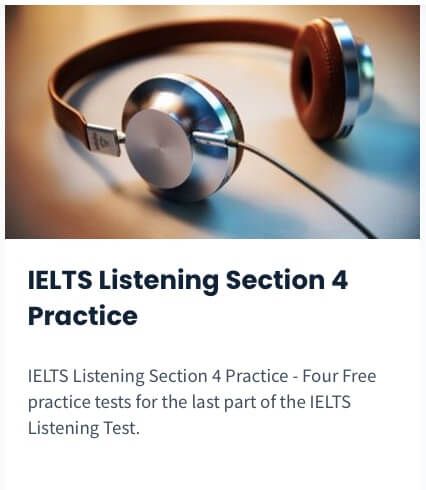
Important pages
IELTS Writing IELTS Speaking IELTS Listening IELTS Reading All Lessons Vocabulary Academic Task 1 Academic Task 2 Practice Tests
Connect with us
Copyright © 2022- IELTSbuddy All Rights Reserved
IELTS is a registered trademark of University of Cambridge, the British Council, and IDP Education Australia. This site and its owners are not affiliated, approved or endorsed by the University of Cambridge ESOL, the British Council, and IDP Education Australia.

Industrial Growth is Necessary to Solve Poverty Essay
You should spend about 40 minutes on this task.
Write about the following topic:
Some people say that industrial growth is necessary to solve poverty, but some other people argue that industrial growth is creating environmental problems and it should be stopped. Discuss both views and give your opinion.
Give reasons for your answer and include any relevant examples from your own knowledge or experience.
The persistent problem of poverty in the developing world has put a question mark on the relation The persistent problem of poverty in the developing world has put a question mark on the relation between economic growth and poverty. Some individuals are of the opinion that when economy develops, because of industrial growth, poverty comes down. Others believe that economic growth leads to poverty. This essay intends to analyse both perspectives. I, however, agree with the former view.
To begin with, industrial growth benefits nearly all citizens of a country, even if not equally, and therefore reduces poverty. For example, in rural areas, most of the poor are engaged in agriculture. When such a country grows through agricultural exports, it benefits both poor farmers and the even poorer labourers they employ. Similarly, rapid growth in manufacturing sector because of increase in demand creates a lot of new jobs, and eventually causes a rise in wages that further reduces poverty. ielts-essay.com
My second argument comes from historical records. Western countries began discovering the positive relation between economic growth and poverty reduction around 1820 and as a result the living standards in Europe and the United States improved many fold in the next years. Economic growth thus eliminated mass poverty in what is today considered the developed world. Even a short-term view confirms that the recent acceleration of growth in many developing countries has reduced poverty, measured the same way.
The opponents of this view claim that economic progress leads to inequality between the rich and the poor. They opine that a handful of rich are getting richer while the poor are being driven to the wall. However, results have proved that such inequality is only short lived and everyone has benefited in the long run. It is because of the high initial inequality that it appears as if economic growth is leading to poverty.
Summing up, industrial progress definitely reduces poverty. Sometimes, there is unequal distribution of wealth in the initial stages of economic development. Nonetheless, everyone benefits eventually.
Also Check: It is Important for People to Take Risks IELTS Essay
Similar Posts
Teenagers should concentrate on all subjects at school.
Some people think that teenagers should concentrate on all subjects at school. Others believe that teenagers should focus on the subject they are best at or they are most interested in. Discuss both views and give your opinion.
Children should be given some freedom to make mistakes
Some people believe that children should be given some freedom to make mistakes, while others argue that adults should prevent them from doing so. Discuss both views and give your own opinion.
Television and Internet have brought Revolution
Television and internet have brought revolution in the field of communication and entertainment, but their excessive use has a negative impact too. Discuss both the views.
Physical Strength is Important for Success in Sport Essay
Some people think that physical strength is important for success in sport, while other people think that mental strength is more important. Discuss both the views and give your opinion.
Freedom to Make Mistakes IELTS Essay
Some people think children have the freedom to make mistakes, while other people believe that adults should prevent children from making mistakes. Discuss both sides and give your opinion.
Visitors to other Countries should Follow Local Customs
Some people believe that visitors to other countries should follow local customs and behavior. Others disagree and think that the host country should welcome cultural differences. Discuss both these views and give your opinion.
Leave a Reply Cancel reply
Your email address will not be published. Required fields are marked *
Save my name, email, and website in this browser for the next time I comment.
21 August 2023 IELTS Agree Disagree Essay on Poverty
Find the answer to the 21 August 2023 IELTS Writing Task 2 question as reported by Academic test takers.
Share this article:
About the article
This IELTS Academic Question Appeared on 21 August, 2023 in India.
Question: The best way to reduce poverty in developing countries is by giving up to six years of free education so that they can at least read, write, and use numbers. To what extent do you agree or disagree?
The most appropriate course of action to bring down the level of destitution in developing nations is to provide education for the first six years without charging for it in order for people to have basic literacy. I completely disagree with the given notion as many literate people are finding it hard to earn a decent living for themselves at present.
Firstly, it is crucial to understand that just by enabling individuals to read, write, and use numbers, the level of poverty cannot be alleviated. This is because basic literacy is good enough to provide only low-level jobs. Instead, people need secure and decent-paying jobs, which can be facilitated by improving the infrastructure of rural areas. By doing so, the rural population will not migrate to urban cities, reducing competition. Besides, this process of advancing the infrastructure will create many positions, such as architects, urban designers, and so on. For instance, when a new hospital is established, many roles are created, starting from front desk executives to doctors.
Secondly, governments need to bring in some reforms in the taxation systems. Poverty can be easily controlled if a nation has a socialist economy. The aim of such an economy is to ensure that the national income is distributed among its citizens in such a way that it reduces the gap between the rich and the poor. For example, the Netherlands has a socialist economy, and therefore, the gap between different sections of society there is not as wide as it is usually in other countries, which have capitalist economies.
To conclude, only basic literacy cannot remedy the problem of impoverishment. Instead, some advancements need to be introduced in rural areas along with making alterations in the taxation systems.
Read our research on: Abortion | Podcasts | Election 2024
Regions & Countries

The Hardships and Dreams of Asian Americans Living in Poverty
Illustrations by Jing Li
Asian Americans are often portrayed as economically and educationally successful.
In reality, about one-in-ten Asian Americans live in poverty. Asian Americans also have the most income inequality of any major racial or ethnic group in the United States.
Without closely examining the diversity of Asian American experiences, it’s easy to miss the distinct stories of Asian Americans living with economic hardship.
To understand more about this population, Pew Research Center conducted 18 focus groups in 12 languages to explore the stories and experiences of Asian Americans living in poverty.
Table of Contents
Of the 24 million Asians living in the United States, about 2.3 million live in poverty . Many are working to overcome the economic hardships they encounter and achieve their American dream. But they face challenges along the way, from Asian immigrants grappling with language barriers to U.S.-born Asians navigating pathways to success.
In February 2023, Pew Research Center conducted 18 focus groups with adult participants from 11 Asian origin groups in different regions across the U.S. These are among the most likely Asian origin groups to experience economic hardship in the U.S. Focus groups included those whose approximate family income is at or below 140%-250% of the 2022 federal poverty line, depending on their location. Accompanying these focus group findings are results from a Pew Research Center survey about the hardships and dreams of Asians living in poverty, conducted from July 2022 to January 2023.
Some common themes that focus group participants shared include day-to-day financial difficulties, assumptions by others that they do not need help because they are Asian, and the importance of financial security in achieving the American dream.
Related: 1 in 10: Redefining the Asian American Dream (Short Film)
Focus groups also reveal that Asian Americans’ experiences with economic hardship differ by whether they were born in the U.S. or outside the country. Some immigrants not only experience difficulties making ends meet, but also face challenges that come with living in a new, unfamiliar country. These include learning English, navigating daily life in a new place and finding a stable job.
Even though U.S.-born Asians grew up in this country and speak English, they talk about the challenges of understanding what it takes to succeed in America. This includes getting the “right” education, getting access to the “right” knowledge and knowing the “right” people to succeed.
The findings in this data essay reveal what participants shared about their experiences with economic hardship, overcoming challenges, and their views of the American dream and social mobility in America.
The terms Asians and Asian Americans are used interchangeably throughout this data essay to refer to those who self-identify as Asian, either alone or in combination with other races or Hispanic identity.
The terms living in poverty, living near or below the federal poverty line and living with economic hardship are used interchangeably throughout this essay to refer to adults whose family income is close to or below the 2022 federal poverty line.
- For results on Asian adults from the focus groups, this refers to adults whose approximate family income is at or below 140%-250% of the federal poverty line. Thresholds varied by focus group recruitment locations to account for differences in the cost of living.
- For results on Asian adults from the survey , this refers to adults whose approximate family income falls at or below 100% of the federal poverty line.
- For data on the total U.S. Asian population from the U.S. Census Bureau , this refers to all Asian Americans whose family income is at or below 100% of the federal poverty line.
The terms federal poverty line and poverty line are used interchangeably to refer to the federal poverty guidelines published yearly by the U.S. Department of Health and Human Services.
The term U.S. born refers to people born in 50 U.S. states, the District of Columbia, Puerto Rico or other U.S. territories.
The term immigrant refers to people who were born outside the 50 U.S. states or the District of Columbia, Puerto Rico or other U.S. territories.
Asian Americans and financial struggles
Financial difficulties are part of many Asian Americans’ day-to-day lives, according to the 2022-23 survey. Asian adults were asked if they had experienced any of the following financial challenges in the past 12 months: gotten food from a food bank or a charitable organization, lost their health insurance, had problems paying for their rent or mortgage, had trouble paying for medical care for themselves or their family, had trouble paying their bills, or been unable to save money for emergencies.

“It got really bad to the point where a simple bowl of rice, we weren’t even able to afford that. So there were times where a bowl of rice would be a meal for all three meals, or we just simply did not eat.” NOLAN , FILM PARTICIPANT
The most common financial difficulty experienced is being unable to save for emergencies. More than half of Asian adults living in poverty (57%) said this had happened to them. By comparison, fewer Asian adults living above the poverty line (40%) said this.
Note: “Asian adults living in poverty” refers to survey respondents whose approximate family income is at or below 100% of the federal poverty line. Share of respondents who didn’t offer an answer or answered “no” not shown.
Source: Survey of Asian American adults conducted July 5, 2022-Jan. 27, 2023. “The Hardships and Dreams of Asian Americans Living in Poverty”
Some focus group participants shared how challenging it was for them to save because of their earnings and their family needs. Participants also talked about the urgency they feel to save for their children and retirement:
“I feel a bit helpless [about my financial situation]. … I don’t want to be in debt. I have to save money to raise my kids, but I don’t have money to save.”
–Immigrant man of Korean origin in early 30s (translated from Korean)
“[I save money] to go to Pakistan. Because I have four children … I needed five or six tickets, in case my husband traveled with us, and it required a lot of money. We used to save for one whole year, and when we were back from Pakistan, we were usually empty-handed. Then the cycle started again.”
–Immigrant woman of Pakistani origin in late 40s (translated from Urdu)
“You’re not going to work forever. No one is going to work forever. You want to have savings … for your rent [or] in case of medical bills [if] something happens. [You] might as well [save for] some trips down the while when you [can] travel still. But you’re not going to be working at 80 years old, are you?”
–U.S.-born man of Chinese origin in early 40s
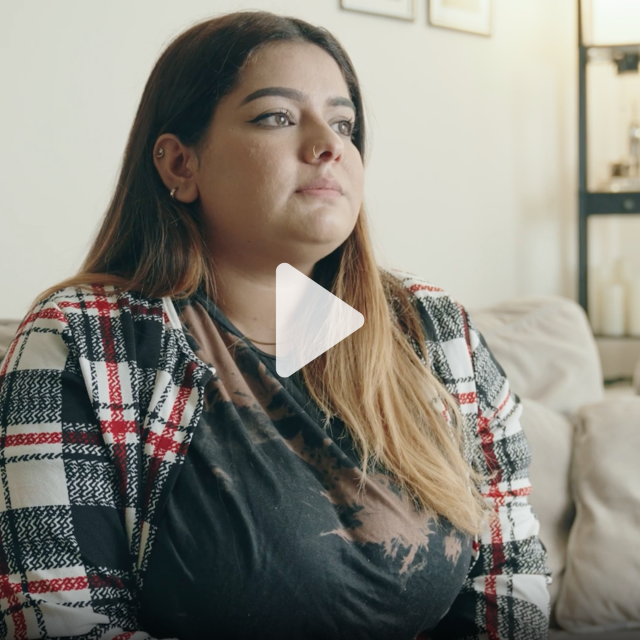
“We were all four of us in one apartment, four siblings, plus the parents, so that’s six people in a house, which was very, very cramped.” SABA , FILM PARTICIPANT
Other common difficulties for Asian Americans living near or below the poverty line include having trouble paying their bills (42%), needing to get food from a food bank or a charitable organization (38%) and having problems paying their rent or mortgage (33%), the survey found. Smaller shares of Asian adults living above the poverty line say they experienced difficulties paying their bills (17%), got food from a food bank or a charity (6%) or had trouble paying their rent or mortgage (11%).
These findings were echoed in our focus groups, where participants recalled the stress and tension their families felt when things like this happened to them:
“My dad lost his car a couple of times. There was this one time where I remember it was nighttime. All of a sudden, a cop comes over to our home [with another person]. … And my dad was forced to give up his car to this stranger … because, I don’t know, he wasn’t paying off the car or something. And it was very humiliating, and my brothers wanted to get physical with that person because he was acting very arrogantly. My dad was able to eventually pay back the car and somehow get it back. But there were many times when we might not have had a roof over our heads.”
–U.S.-born man of Pakistani origin in late 20s
Asian immigrants face challenges navigating life and employment in the U.S.
Immigrant and U.S.-born Asians experience economic hardship in different ways. Asian immigrants in the focus groups discussed how a lack of English proficiency, navigating transportation and getting a good job all shape their experiences with economic hardship.
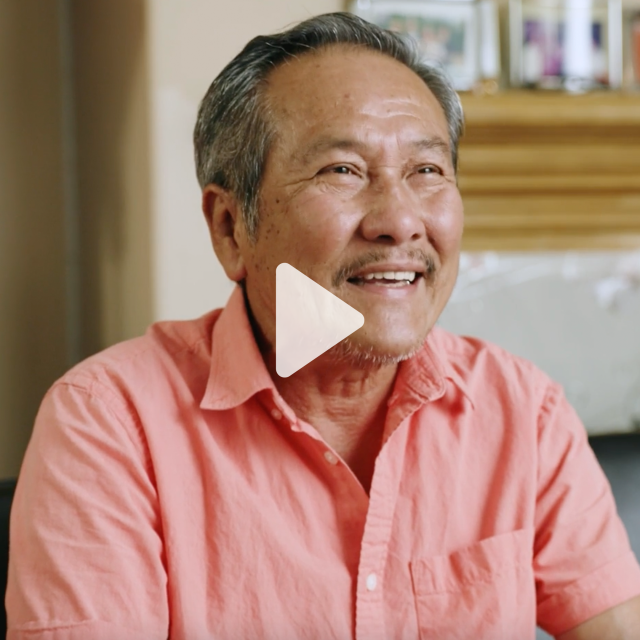
“I felt sad about life, didn’t know the language, didn’t know the roads. I had no friends, so I felt very sad.” PHONG , FILM PARTICIPANT (TRANSLATED FROM VIETNAMESE)
For example, not knowing English when they first arrived in the country created extra challenges when using local transportation systems and meeting basic daily life needs such as shopping for groceries:
“When we were very young, the most difficult thing we faced [after coming to the U.S.] was not being able to speak the language. Unless you lived in those times, you wouldn’t know. We didn’t know how to buy food. … We didn’t know the language and there was no interpreter available. … I didn’t know how to take the bus, I didn’t know where to go, or to which place they were taking me to school. When we were asked to go to the classroom, we didn’t know where to go. … There was no other way, because there was no communication.”
–Immigrant woman of Hmong origin in late 50s (translated from Hmong)
Language barriers also brought extra hurdles for Asian immigrants in the job market. Some focus group participants said it was hard to explain their skills to potential employers in English effectively, even if they had the relevant education or skills for the job and had learned English before they immigrated:
“After coming [to the U.S.], there were many problems to face, first … the language problem. We have read English … but we are not used to speaking. … We also had education … but since we can’t explain ourselves in English – what we can do, what we know … we are getting rejected [from jobs] as we cannot speak. … Another problem was that I had a child. My child was small. I could not go to work leaving him. At that time, my husband was working. He also had the same thing – he had education, but he could not get a good job because of the language. [As another participant] said, we had to work below the minimum wage.”
–Immigrant woman of Bangladeshi origin in late 30s (translated from Bengali)
Not wanting to be a burden influenced life choices of many U.S.-born participants
For many U.S.-born focus group participants, concerns about being a burden to their families shaped their childhoods and many of their life decisions:
“It’s difficult to talk to [my parents] because you grew up here and it’s just totally different from them growing up in Vietnam. … It’s the same like what [another participant] was saying, when you take off the burden to your parents, right? So I dropped out of college, just because I didn’t want them paying anymore. I just didn’t think that I was going to do or be anything in college, right? So I would rather work. So I started taking responsibility of my own and you start working really hard and you getting out of the house and helping them pay for bills.”
–U.S.-born man of Vietnamese origin in mid-40s
“My family’s struggling. Is education more important, [or] is working more important? I really felt that growing up because a lot of my friends, education – going to college and going to a techno school – wasn’t really on their radar, it wasn’t really something on their plan. I think talking to a lot of the folks and a lot of my friends during their time, they felt like they had to grow up to provide for their family or for you to find some type of income to kind of help their family. And so that really drove the direction of at least one of my friends, or a lot of my friends.”
–U.S.-born man of Hmong origin in mid-30s
Some U.S.-born focus group participants said that when reflecting on their childhoods, they could see the financial burden they had on their families in a way they did not realize as a child:
“At a certain point you become very aware of how much of a financial burden you are. You don’t ask for anything you want. Like, you don’t ask for prom. You don’t ask to join clubs. You don’t ask to go on field trips, things like that. You just know that it’s going to cause so much drain on your parents.”
–U.S.-born woman of Vietnamese origin in mid-20s
“[My parents] had like a lot of responsibilities, like … giving money back to their father, and then their sisters and brothers, helping them out back [in Pakistan]. … [My father] had to support us and then send money back constantly there. I didn’t know that until now, basically. … We would hardly see him. Maybe like on Sunday, we would see him a couple of hours. But it was on the weekdays, we would hardly see our father. He was always working.”
–U.S.-born woman of Pakistani origin in early 30s
Overcoming economic challenges
The survey found that when Asian adults living in poverty have needed help with bills, housing, food or seeking a job, about six-in-ten (61%) say they’ve turned to family or friends.
Some focus group participants mentioned that families and friends in their ethnic community were a great source of financial help. For others, the limited size of their ethnic community in the U.S. posed obstacles in obtaining assistance.
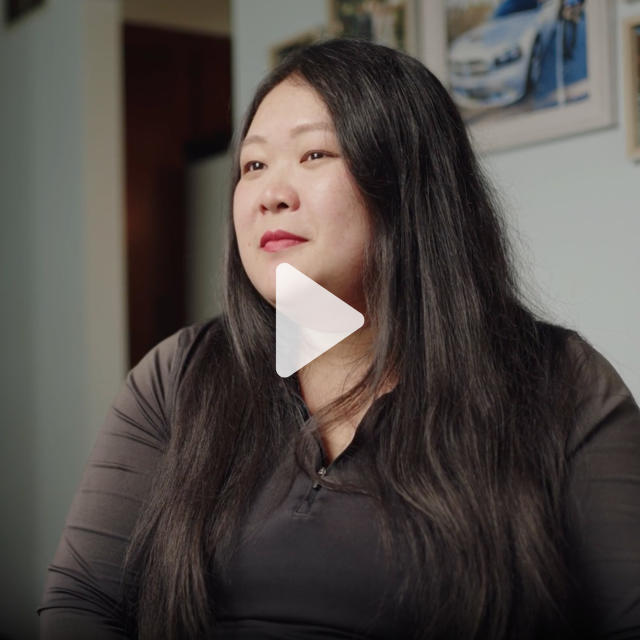
“My dad arrived in the U.S. when he was 26 years old, and I’m now 29 years old. … I have seven siblings and my parents who support me. And my parents didn’t have that, they didn’t have their parents to support them.” TANG , FILM PARTICIPANT
“It was very difficult during [my] study [at university]. … I had a scholarship, most of the part was scholarship; however, I had to pay something between $10,000 and $15,000 per semester. And I had to eat, I had to pay rent, I had to do everything. At the same time, there are many other things too, aren’t there? And there was always a stress about money. This semester is over now, how do I pay for the next? I had no clarity about what to do and not to do. In that situation, I approached those friends studying there or who came there a little earlier and were working to borrow money. … I [was] offered help by some friends and in finding a job and being helped for my needs.”
–Immigrant man of Nepalese origin in early 40s (translated from Nepali)
“We didn’t have a large Burmese community to ask for such help. It was not yet present. As we had no such community, when we had just arrived, we told close friends, got directions and went to ask for help.”
–Immigrant woman of Burmese origin in late 40s (translated from Burmese)
However, not all Asians living with economic hardship have asked for or received help. In the focus groups, participants shared why they or their families sometimes did not do so or felt hesitant. Fear of gossip and shame were mentioned multiple times:
“[I experienced financial difficulties after I first arrived in the U.S.] because I came here as a student. … It’s because I had to pay monthly rent and I paid for living expenses. I felt a little pressured when the monthly payment date approached. I had no choice but to ask my parents in Korea for money even as an adult, so I felt a sense of shame.”
–Immigrant woman of Korean origin in early 40s (translated from Korean)
“My cousin will [help me financially] without judgment. But, like, my aunt and elders – if it gets back to them [that I asked for help], it’s going to for sure come with judgment. And if I could figure it out myself, I will take the way without judgment.”
“To add on to what [another participant] said, if you go to the community [for help] or whatever, you know, by tomorrow everybody’s going to know it’s your problem.”
–U.S.-born woman of Pakistani origin in early 40s
Immigrants who came to the U.S. because of conflict are more familiar with government aid programs
Asian immigrants come to this country for a variety of reasons. In the focus groups, immigrant participants who came to the U.S. due to conflict or war in their origin countries referenced government assistance programs more often than those who came for other reasons.
This reflects a broader pattern among Asian immigrants overall: Those who came because of conflict or persecution have turned to federal, state or local governments for help with living expenses or employment more often than immigrants who came for economic or educational opportunities, according to the survey.
Focus group participants reflected on differences in the amount of government help available. Sometimes, they expressed a sense of unequal treatment:
“Vietnamese have this program where people got sponsored because of the war. So for other Asians, they feel that we are more privileged. Because from what I know, the Koreans and the Japanese, they must have money in order to come to America. As for us, we can come here through the refugee program, we can come here through the political program. They feel that we got more preferential treatment than other Asians in that regard.”
–Immigrant man of Vietnamese origin in early 40s (translated from Vietnamese)
“During the pandemic, I had to go through housing assistance and everything [to pay my rent]. Something like that with EBT [Electronic Benefits Transfer], how they send you stimulus checks. Korea doesn’t have any of that stuff.”
–U.S.-born woman of Korean origin in late 40s
“I think my community is relatively traditional. Because 20 years ago, we went straight to Chinatown fresh off the plane [after immigrating]. I still remember being in [the local] hospital, lots of social workers were there to help out, including with a medical insurance card, and applying for service, most importantly medical insurance. We all went to [the same] street. We relied on other Chinese people.”
–Immigrant man of Chinese origin in late 30s (translated from Mandarin)
Family ties contribute to increased awareness of government programs. For example, when asked how they learned about using government programs for help, some U.S.-born participants said:
“[I learned about the government programs from] my parents. I had to translate for them.”
–U.S.-born woman of Cambodian origin in mid-30s
“I was working at [a smoothie shop], and I was 17 and a half. … My college loan was like $50,000 [and I was] making $12.50 [an hour], how the hell am I supposed to be paying that month to month? Because my month-to-month was damn near $300, $500. My $12.50 an hour does not even cover for it, any of it, whatsoever. And, you know, me [having] been kicked out of home … I was living with my aunt. … I don’t want to burden her. So I had to go and ask her. She told me, ‘Hey, you should go and apply for food stamps.’”
–U.S.-born woman of Laotian origin in mid-30s
U.S.-born and immigrant focus group participants hold different views on education’s role in achieving a better future

“My friend, he started out at internship … I was too naive. I was laughing at the time, like, ‘Man you spend your time? You took buses there every day? No pay?’ … I just didn’t know the big picture behind [it]. I wish I could plan for [it] just like how they did.” PHUOC , FILM PARTICIPANT
Reflecting on what could lead to success and achieving the American dream, focus group participants who were born in or grew up in the U.S. emphasized the value of getting connected to the “right” opportunities:
“[You don’t have] to go to school to be successful. I mean, they say there are people who are book smart and just people who are street smart, you know. [As long as you] grow up and you know the right people … networking on the right people to get into things. Or, you know, the right people to do the right things to get to where you want to be in life.”
–U.S.-born man of Hmong origin in late 20s
Other participants said it would have helped if their families had a deeper understanding of how the education system prepares them for good careers:
“I feel if my parents were educated and they could have guided me in the right direction [for college] – although, they tried their best. I’m not blaming them. But, you know, if I had someone of a more academic background who knew the system … I will try my best to help my daughter out in college or help her choose what her major is going to be. [My parents couldn’t provide] that kind of help that really helped me in choosing my major. … And so I think just the background that we come from was not the best – or not having the full grasp of this system. … Versus someone who’s had parents here for multiple years, and their parents are now telling them, like, ‘Hey, this is not the right decision for you. Try doing this. This will be better in the long run.’”
–U.S.-born man of Pakistani origin in early 30s
Some also said firsthand knowledge of how to invest and how the U.S. financial system works would have helped:
“[In] the newer generation, we have access to learn all the things we need to, right? [I watch videos] that talk about, like, ‘These are the things you need to do in order to be financially successful. You need to invest your money, get into stocks,’ and stuff like that. And I know that not even 1% of my Hmong community knows anything about that stuff. … So I think we can be more financially successful, including myself, if we were to look more deeply into those things.”
–U.S.-born woman of Hmong origin in late 20s
“If you’re educated and know how, like, let’s say investments work, if you know how that’s done and then you apply it actually going through [someone] like investors or even stockbrokers, then you’ll see the fruits of your labor, or at least experience that, as opposed to not even having the knowledge or even the experience to begin with.”
–U.S.-born man of Cambodian origin in mid-30s
Some participants shared that even when they have some knowledge of financial institutions, they feel the system is working against them:
“I think systematic racism [is a barrier to achieving the American dream]. … I mean, if you own a car, you got to get the bank to approve you. … And they charge people with, like, no credit the highest fee, the most percentage, which are a lot of the folks [like] us trying to achieve the American dream. And then we go to neighborhoods that have the highest crime rate, we also have the most premiums. … And so I think that, one, we’re paying a lot more with much less … the system [was] set up well before minorities, and I think we’re pretty much going to fall behind.”
Many focus group participants also see the value of education, especially a college one, in leading toward a better future and achieving the American dream:
“[When I think of the American dream, it means] if you work hard enough, you can succeed. … You can get an education or a higher education. Then you have so many choices here and exposure to so many ideas and concepts that you wouldn’t otherwise.”

“The bachelor’s degree was important to me in the sense that I needed it so that I could apply for the jobs I wanted. … I guess it made things a bit easier.” THET , FILM PARTICIPANT (TRANSLATED FROM BURMESE)
But this sentiment resonated more with immigrant participants than those born in the U.S.:
“It is the education and the relevant knowledge I think that our Hmong people must have. We’ve been living in this country for the last 45 years. I think that to live in this country, it is very important for some people. I do not think everyone has a ‘lawyer’ or a ‘doctor’ in their house. If it happens, maybe we will reach our goal and the poverty will gradually disappear from our lives.”
–Immigrant woman of Hmong origin in mid-30s (translated from Hmong)
“I think if I obtain any degree, I would perhaps be able to do something.”
Assumptions about Asians hurt their chances of overcoming challenges
Participants shared that other people’s assumptions about Asians complicate their experience of living with economic hardship. Asians are often characterized as a “model minority” and portrayed as educationally and financially successful when compared with other groups.
Some participants shared how the assumption that all Asians are doing well hurt their ability to seek help:
“I have a daughter … she’s the only Asian in class. … Everybody tends to think, ‘She’s Asian; she’s so smart; her mommy has money. So you got to invite her to your birthday party because her mom is rich. [Her] mom will buy you a present.’ … I’m not rich, but because we’re Asian … she’s invited to all these parties.”
–U.S.-born woman of Hmong origin in early 30s
“What I can assume is that outside of our community, especially at the government level, [including] state level and central federal level here, we are missing out or not eligible for benefits. In their opinion, we are rich, no matter if we are working or not. [They may think] our stories may not be genuine. They may think we are making up a story [if we apply for benefits].”
Striving for the American dream
Freedom was a recurring theme in how focus group participants define their American dream. Two aspects were mentioned. The first was freedom from debt and stress over making ends meet, such as paying for everyday basic needs including rent and food. The second was the ability to make life choices freely without financial constraints, enabling them to live the life they aspire to.
Reaching the American dream
Half of Asians living near or below the federal poverty line say they believe they have achieved the American dream or are on their way to achieving it, the survey found. This includes 15% who say they have achieved it and 36% who say they are on their way. By comparison, among those living above the poverty line, 27% say they’ve achieved the American dream, and another 46% say they are on their way.

“Before I came to America, I had never heard of the American dream. … But because I was able to at least bring my son along, not only my life but also his education has improved significantly.” THEIN , FILM PARTICIPANT (TRANSLATED FROM BURMESE)
Among focus group participants, many were optimistic about reaching the American dream for themselves:
“[To me, the American dream is] the opportunity to come to America. I’ve learned a lot after reaching here. And I’ve been able to help my parents and relatives. Despite facing some troubles here, I’ve [provided them a] little financial assistance. I would’ve been unable to help them if I had been in Bhutan.”
–Immigrant woman of Bhutanese origin in late 40s (translated from Dzongkha)
Some participants were also hopeful that the next generation can achieve their American dream, even when they themselves are not there yet:
“When I think about the American dream, I look back at myself, because I belong to the first generation that came to this country. We all started very late. I know that this country will help you, but really it will not be easy for us. … What I think will help me to be happy is to ‘reach the American dream.’ If I can’t achieve it, then I will support my children so that they can reach the dream and I will be happy with them. I will give my children money to help them study.”
“If I can’t get [the American dream] for myself, it is okay. No matter how I am, I’ve already reached half of my life. But I’ve done as much as I can do for [my children], so my responsibility is done. If it’s their turn, I believe they will be able to do all that I couldn’t. I believe it.”
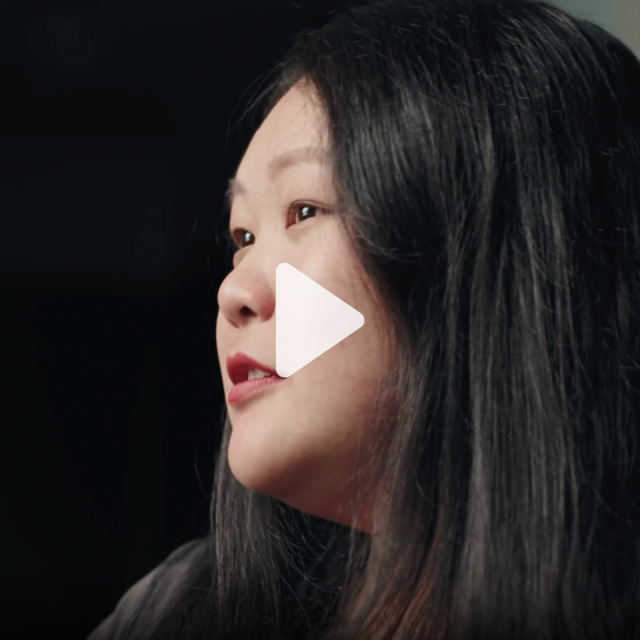
“I would like to own a home one day. And at this rate, and like many of my peers, that’s not a reachable goal right now. I don’t see it being a reachable goal for me for a very, very, very long time.” TANG , FILM PARTICIPANT
Still, the survey found that 47% of Asian adults living in poverty say the American dream is out of reach for them, higher than the share among those living above the poverty line (26%). Not all Asians living in poverty feel the same way about achieving the American dream, with U.S.-born Asians in the focus groups being less optimistic about reaching the American dream than immigrant Asians.
“In a certain era with the U.S. and the immigrants coming, the American dream [was] you come, you study, you do this, you can climb up the ladder, etc., etc. That was the big American dream. And I think there was a period where that was possible. Not any longer.”
Others also shared worries about their prospects of reaching the American dream because of different immigration histories and economic concerns such as inflation:
“I think I was conditioned to think too small to have the American dream. … Vietnamese Americans came over here at a very specific time. … There were Chinese Americans that came here like centuries ago, and they had the time to build generational wealth. We know that Vietnamese people came here in the ’70s. That’s not enough time to grow generational wealth.”
–U.S.-born woman of Vietnamese origin in late 20s
“I have kids. … They’re spoiled. … Now with inflation, houses are more expensive now [than 10, 20 years ago], right? Let’s say 20 years from now, when they buy a house, [the American dream] is going to be unachievable, you know what I mean? Like, unless they are a TikTok star or an entertainer or some kind. … [It’s] going to be tough.”
–U.S.-born man of Chinese origin in late 30s
Freedom from debt
For many participants, being debt-free is important to their vision of the American dream and promotes a life with more financial stability and independence:
“[If I could choose one dream in America, it would be to have] no debt. … When buying something, they always say, ‘Be careful, or you’ll be in debt.’ … And that is what got stuck in my throat.”
–Immigrant woman of Laotian origin in mid-30s (translated from Lao)
“[I haven’t achieved the American dream because I’m not] debt-free, you know, just trying to have extra money, instead of living paycheck to paycheck.”
“[My dream in America is] to be independent, for example, we always lived with the money of mom and dad. One is to be independent when you come here. Let me earn so much money that if I go to the store and buy something, I don’t even have to look at the price tag. That [is] my dream.”
–Immigrant woman of Nepalese origin in early 40s (translated from Nepali)
Participants shared that being debt-free also means having less stress and worry about making ends meet so that they can have extra resources and bandwidth to help their families:
“[The most important thing to achieving the American dream is] being debt-free and having real estate and income steadiness. … If you have rent income, you’re not trading in your time for money, so you have real estate. … You’re not stressing, you have time for your kids more, and your family. You’re probably a little bit happier.”
–Immigrant man of Cambodian origin in mid-20s
“The main thing is that I want to fully support my father and mother, and that I don’t have to worry about [how] I will support myself, or how I will pay my house rent. This is my number one.”
–Immigrant woman of Bangladeshi origin in late 20s (translated from Bengali)
For others, having a stable job is an important step to reaching the American dream:
“I want to have a job, and if I have a job, I’ll have money. I’m only working three and a half days a week right now, and I want to work more. I want more jobs the most, right now. I don’t need anything in America. Just a job.”
Freedom to dream
Focus group participants mentioned having the financial ability to not only meet their basic needs, but also pursue their dreams. Asians born in the U.S. mentioned the freedom to chase one’s aspirations without financial constraints more often than immigrants. Regardless of nativity, the ability to live the life they want is fundamental to many focus group participants’ definitions of the American dream:
“[When] everyone around you is immigrants and you’re all just trying to survive, the only thing you’re trained to think about is survival. But you’re not thinking about investment. Like, when you grow older and you start thinking, ‘Okay, I need to spend money to make money,’ that’s when you start thinking bigger. Yeah, I’m not just thinking about like having one home, I want 10 homes.”
“[Financial] stability is you have nothing but you could survive. [Financial] freedom is you have enough that you can do anything you want. That’s my financial freedom.”
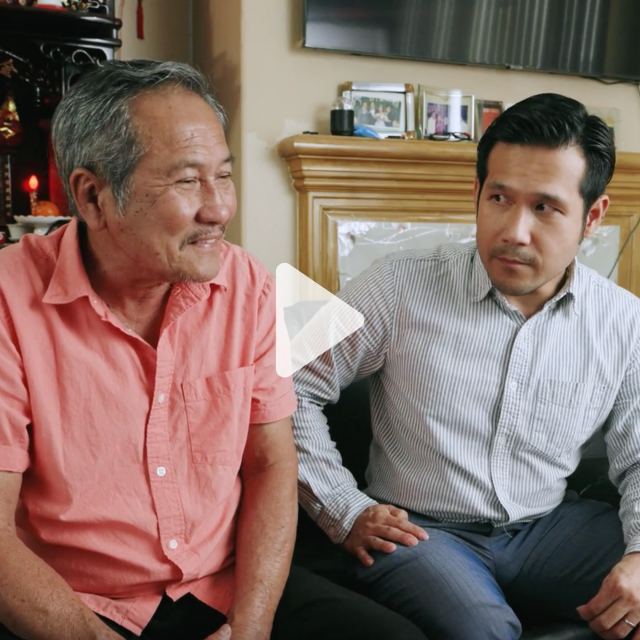
“As it was so hard at that time … what motivated you to keep going and work so hard?” “My strength, my mindset was I wanted to earn money so that my children could have a bright future.” PHUOC AND PHONG , FILM PARTICIPANTS (TRANSLATED FROM VIETNAMESE)
The American dream, to some focus group participants, is about more than financial achievements. Finding happiness and helping others, ultimately leading them to live the life they desire, are key parts of their American dream.
“I want to thank [another participant] for saying ‘self-actualization,’ because personally I think it’s really powerful to be able to know what you want. Because then you’ll know what kind of job you want, what kind of house you want, whether you want to be in politics or not. Like, loving yourself and understanding yourself to your core, then that will be the [deciding factor].”
–Immigrant man of Cambodian origin in early 40s
“I think for me [the American dream] is that there is a house for me, with no interest, I do not owe any loan, my parents could live there comfortably, their struggle is over, and also I have enough … to be able to do something for Pakistan later [in life], God willing.”
–Immigrant woman of Pakistani origin in mid-20s (translated from Urdu)
“[Some people define success as having] lots of money, kids, cars, right? But that’s not really … what I would consider success. Success is something that – does it make you happy? … Are you happy every day going to work? Does it make you happy? When you come home, are you happy?”
About this project
Pew Research Center designed these focus groups and survey questions to better understand the experiences of Asian Americans living with economic hardship. By including participants who are among the Asian origin groups most likely to experience poverty, the focus groups aimed to capture, in their own words, their experiences and challenges in America today. The discussions in these groups may or may not resonate with all Asians living in poverty in the United States.
The project is part of a broader research portfolio studying the diverse experiences of Asians living in the U.S.
Survey and demographic analysis of Asians living in poverty
For a comprehensive examination of Asian adults’ experiences with economic hardship from Pew Research Center’s 2022-23 survey of Asian Americans, as well as a demographic analysis of the U.S. Census Bureau’s 2022 American Community Survey, read “Key facts about Asian Americans living in poverty.”
Videos throughout this data essay illustrate what focus group participants discussed. Individuals recorded in these video clips did not participate in the focus groups but were selected based on similar demographic characteristics and thematically relevant stories.
Watch the short film related to the themes in the data essay.
Methodological note
This multi-method research project examines the many facets of living with economic hardship among Asian Americans today.
The qualitative analysis is based on 18 focus groups conducted in February 2023 in 12 languages with 144 participants across four locations. Recruited participants had an approximate family income that is at or below 140%-250% of the federal poverty line, depending on the location. More information about the focus group methodology and analysis can be found in the focus group methodology .
The survey analysis included in this data essay is based on 561 Asian adults living near or below the poverty line from Pew Research Center’s 2022-23 survey of Asian Americans, the largest nationally representative survey of Asian American adults of its kind to date, conducted in six languages. For more details, refer to the survey methodology . For questions used in this analysis, refer to the topline questionnaire .
Acknowledgments
Pew Research Center is a subsidiary of The Pew Charitable Trusts, its primary funder. The Center’s Asian American portfolio was funded by The Pew Charitable Trusts, with generous support from The Asian American Foundation; Chan Zuckerberg Initiative DAF, an advised fund of the Silicon Valley Community Foundation; the Robert Wood Johnson Foundation; the Henry Luce Foundation; the Doris Duke Foundation; The Wallace H. Coulter Foundation; The Dirk and Charlene Kabcenell Foundation; The Long Family Foundation; Lu-Hebert Fund; Gee Family Foundation; Joseph Cotchett; the Julian Abdey and Sabrina Moyle Charitable Fund; and Nanci Nishimura.
We would also like to thank the Leaders Forum for its thought leadership and valuable assistance in helping make this survey possible.
The strategic communications campaign used to promote the research was made possible with generous support from the Doris Duke Foundation.
This is a collaborative effort based on the input and analysis of a number of individuals and experts at Pew Research Center and outside experts.
- In this data essay, definitions of “living near or below the poverty line” and related terms differ between survey respondents and focus group participants. Refer to the terminology box for details. ↩
Sign up for our weekly newsletter
Fresh data delivered Saturday mornings
About Pew Research Center Pew Research Center is a nonpartisan fact tank that informs the public about the issues, attitudes and trends shaping the world. It conducts public opinion polling, demographic research, media content analysis and other empirical social science research. Pew Research Center does not take policy positions. It is a subsidiary of The Pew Charitable Trusts .

- IELTS Books
- Latest IELTS Listening
- Latest IELTS Reading
- Latest IELTS Speaking
- Latest IELTS Writing
- Speaking Part 1
- Speaking Part 2
- Speaking Part 3
- Practice Tests
- IELTS General
Sample Essay for IELTS Writing Task 2 Topic: Rich Countries Give Financial Aid to Poor Countries
Rich countries often give financial aid to poor countries, but it does not solve poverty. so rich countries should give other types of help to poor countries rather than financial aid., ielts writing task 2 question.
Rich countries often give financial aid to poor countries, but it does not solve poverty. So rich countries should give other types of help to poor countries rather than financial aid. To what extent do you agree or disagree?
Sample Answer
Underdeveloped countries receive a substantial amount of aid from developed countries. However, it seems quite interesting that this measure has not eradicated poverty in the nations receiving support. As a result, people opine that financial aid must be substituted with other forms of assistance. I strongly believe in the latter point of view. In the following paragraphs, I shall explain how emergent nations can prosper with other forms of aid.
Primarily, monetary assistance cannot alleviate the deep-rooted problems in the underdeveloped nations. For example, the world bank may spend generously on country A. But the country’s political environment may not be stable. So the funds may not reach the poor. The government may introduce namesake development programs that don’t help the people. Moreover, the country may have unresolved social problems. Eventually, the country will continue to remain poor despite receiving huge amounts of aid. So it is high time that developed nations resort to other forms of assistance in these countries.
Primarily, they must invest in education and healthcare. Young people should receive a quality education. Everyone should have access to proper medical treatment. Education will help eradicate unemployment and prevent people from resorting to unlawful activities. So developed countries must help in building good schools, universities, and hospitals. Moreover, they can help stabilize the government in these countries and monitor whether the political environment is conducive for growth.
In conclusion, mere financial aid will not contribute greatly to a country’s development. The right form of assistance must be decided after a thorough analysis of the country’s social, economic, climatic, and political conditions.
Structure of the opinion essay
Choose the side (agree/disagree)
- Do you agree that rich countries should give other types of help to poor countries rather
than financial aid? or
- Do you disagree that rich countries should give other types of help to poor countries rather
than financial aid?
Introduction:
Question Paraphrased – Underdeveloped countries receive a substantial amount of aid from developed countries. But, it is interesting to note that this measure has not eradicated poverty in the nations receiving support. So people have started thinking that financial aid must be substituted with other forms of assistance.
Opinion – I strongly believe in the latter point of view.
A thesis statement – In the following paragraphs, I shall explain how emergent nations can prosper with other forms of aid.
Body Paragraph 1:
Central idea: Why financial aid fails to help?
Supporting points:
- Unstable political environment.
- Introduction of namesake programs
- Unresolved social problems
Body Paragraph 2:
Central idea: Alternatives that can help
- Investment in education and healthcare
- Monitoring political conditions
Conclusion:
Reiterated that type of aid must be decided after an in-depth study of the country and just financing is of no help.
[SEP – DEC 2021] IELTS Listening Recent Actual Test 21 with Answers
[sep – dec 2021] ielts listening recent actual test 22 with answers, you may also like, recent ielts speaking exam with model answers in..., ielts direct question essay model answer – topic:..., recent ielts speaking test in canada – november..., latest ielts actual tests worldwide in 2021 (updated..., recent ielts speaking test in uzbekistan – november..., ielts discussion essay model answer – topic: computer..., ielts speaking test in nepal – november 2021..., leave a reply cancel reply.

IMAGES
VIDEO
COMMENTS
50 Latest Poverty IELTS Topics. Get a band score and detailed report instantly. Check your IELTS essays right now! Read more ». Opinion. Some people think that economic development is the only way to end poverty while others believe that it is causing damage to the environment and so should be stopped.
IELTS Writing Task 2/ IELTS Essay: You should spend about 40 minutes on this task. Write about the following topic: ... Poverty is a pressing issue in many parts of the world and effective steps are quite important to solve this problem. The following essay will discuss some of the reasons that lie beneath the issue and some of the solutions to ...
Sample Answer 2: The gap between the rich and the poor is widening fast than ever throughout the world. This enormous gap certainly causes a lot of problems that a nation must endure solving through various means. This essay discusses the problems associated with paucity and proposes some solutions to alleviate poverty.
This is an IELTS writing task 1 sample answer essay on the topic of average income and people below the poverty line in an IELTS table. You can also get my full EBooks below: Full IELTS EBooks on Patreon. Dave. IELTS Task 1: Poverty Table. The table details age demographics and their relation to poverty in three states in the United States of ...
Sample Essay. It is true that some people contend that economic growth is the only solution to the global problems of hunger and poverty. Others, however, argue for an end to economic growth to conserve our environment. I agree completely with this second view. Those who see economic growth alone as the sole cure for the tragedy of world hunger ...
IELTS Task 1: Number of Jobs. The pie chart shows women in poverty in the United States and bar chart compares poverty rates by gender. The pie chart gives statistics for the status of women in poverty and the bar chart breaks down poverty by gender and age demographics in 2008. Looking from an overall perspective, it is readily apparent that ...
Model Answer: Some people contend that poverty is the root cause of the most offences that people commit. I think that while poverty is undoubtedly a significant social issue with wide-ranging implications, attributing most crimes solely to poverty oversimplifies the complex causes of criminal behaviour. This essay will explain why.
Sample Band 9 Essay Homelessness and poverty is a terrible but topical issue in both more economically and less economically developed countries. To deal with this, many people feel that a small proportion of everyone's income should be used to aid the homeless and poor. This could create more opportunities and change the lives of many disadvantaged people for the better.
Band 8 IELTS essay sample. Poverty is a critical issue faced by many countries in the world. The essay will discuss some of the important reasons which cause poverty and how poverty-stricken people can be helped. It is evident that one of the most important reasons for poverty is illiteracy and lack of access to education. Uneducated people ...
You should use your own ideas, knowledge and experience and support your arguments with examples and relevant evidence. You should write at least 250 words. Many people think that countries have a moral obligation to help each other, while other argue that the aid money is misspent by the governments that receive it, so the international aid ...
To conclude, while poverty is becoming more and more prevalent throughout the world, it is a problem that can be remedied by committed governments and private sector entities. ... Writing9 was developed to check essays from the IELTS Writing Task 2 and Letters/Charts from Task 1. The service helps students practice writing for IELTS and improve ...
Paraphrase the overall essay topic. Write a clear opinion. Read more about introductions here. 1. While free education is a crucial step towards poverty reduction, it is not a standalone solution. 2. Equally essential are adequate infrastructure, trained teachers, and quality educational resources. 3.
To get an excellent score in the IELTS Task 2 writing section, one of the easiest and most effective tips is structuring your writing in the most solid format. A great argument essay structure may be divided to four paragraphs, in which comprises of four sentences (excluding the conclusion paragraph, which comprises of three sentences).
This. essay will explain why. Firstly. , the relationship between. poverty. and crime is not purely causal. Poverty. can increase the likelihood of individuals engaging in criminal activities as they may face limited opportunities for education, employment, and economic advancement. However.
IELTS Essay on Poverty. People have different views on whether industrial development should be encouraged to eradicate poverty or should be stopped to reduce global environmental related issues. Although a smaller section of the population believed that this phenomenon will create employment and increase the purchasing power of a nation, I ...
Essay topic. The best way to reduce poverty in developing countries is by giving up to 6 years of free education to children, so that they can at least read, write and use numbers. To what extent do you agree or disagree with the statement? Sample essay. Education plays a crucial role in alleviating poverty.
T5: Enhance your vocabulary related to common IELTS themes like health, education, and poverty. Conclusion: Understanding the complex relationship between poverty and health is crucial for IELTS aspirants. This practice passage, coupled with a diverse set of questions and tips, is designed to enhance reading skills while providing valuable ...
Sample Model Answers for IELTS Essay Topic Poverty. Practice from these ielts essay on topic Poverty. IELTS Poverty Essays.
The questions are organised under common topics and essay types. IELTS often use the similar topics for their essays but change the wording of the essay question. In order to prepare well for writing task 2, you should prepare ideas for common topics and then practise applying them to the tasks given (to the essay questions). ...
IELTS Sample Essays. Here you will find IELTS Sample Essays for a variety of common topics that appear in the writing exam.. The model answers all have tips and strategies for how you may approach the question and comments on the sample answer.. You can also view sample essays with band scores on this page.. Looking at IELTS essay topics with answers is a great way to help you to prepare for ...
Others believe that economic growth leads to poverty. This essay intends to analyse both perspectives. I, however, agree with the former view. ... and eventually causes a rise in wages that further reduces poverty. ielts-essay.com. My second argument comes from historical records. Western countries began discovering the positive relation ...
About the article. This IELTS Academic Question Appeared on 21 August, 2023 in India. Question: The best way to reduce poverty in developing countries is by giving up to six years of free education so that they can at least read, write, and use numbers. To what extent do you agree or disagree?
The terms Asians and Asian Americans are used interchangeably throughout this data essay to refer to those who self-identify as Asian, either alone or in combination with other races or Hispanic identity.. The terms living in poverty, living near or below the federal poverty line and living with economic hardship are used interchangeably throughout this essay to refer to adults whose family ...
IELTS Discussion Essay Model Answer 4 - Topic: Save Languages With Few Speakers From Dying Out. Model Essay for IELTS Writing Task 2 Topic: Learning a Language Could Be Advantageous. IELTS Cause Solution Essay Model Answer - Topic: Poverty. Primarily, they must invest in education and healthcare. Young people should receive a quality education.